The UMKC School of Medicine partnered with Mosaic Life Care and saw an inaugural class this January of 20 students
The University of Missouri Kansas City School of Medicine has expanded to St. Joseph and the local extension has plans to grow. Read the article.
Mar 26, 2021
Kansas City Star features Jannette Berkley-Patton's community work
Jannette Berkley-Patton, a professor in the School of Medicine at the University of Missouri-Kansas City, knew this new virus would pummel a population struggling with persistently high rates of heart disease, diabetes and other chronic illnesses. Read the article. (subscription required)
Feb 28, 2021
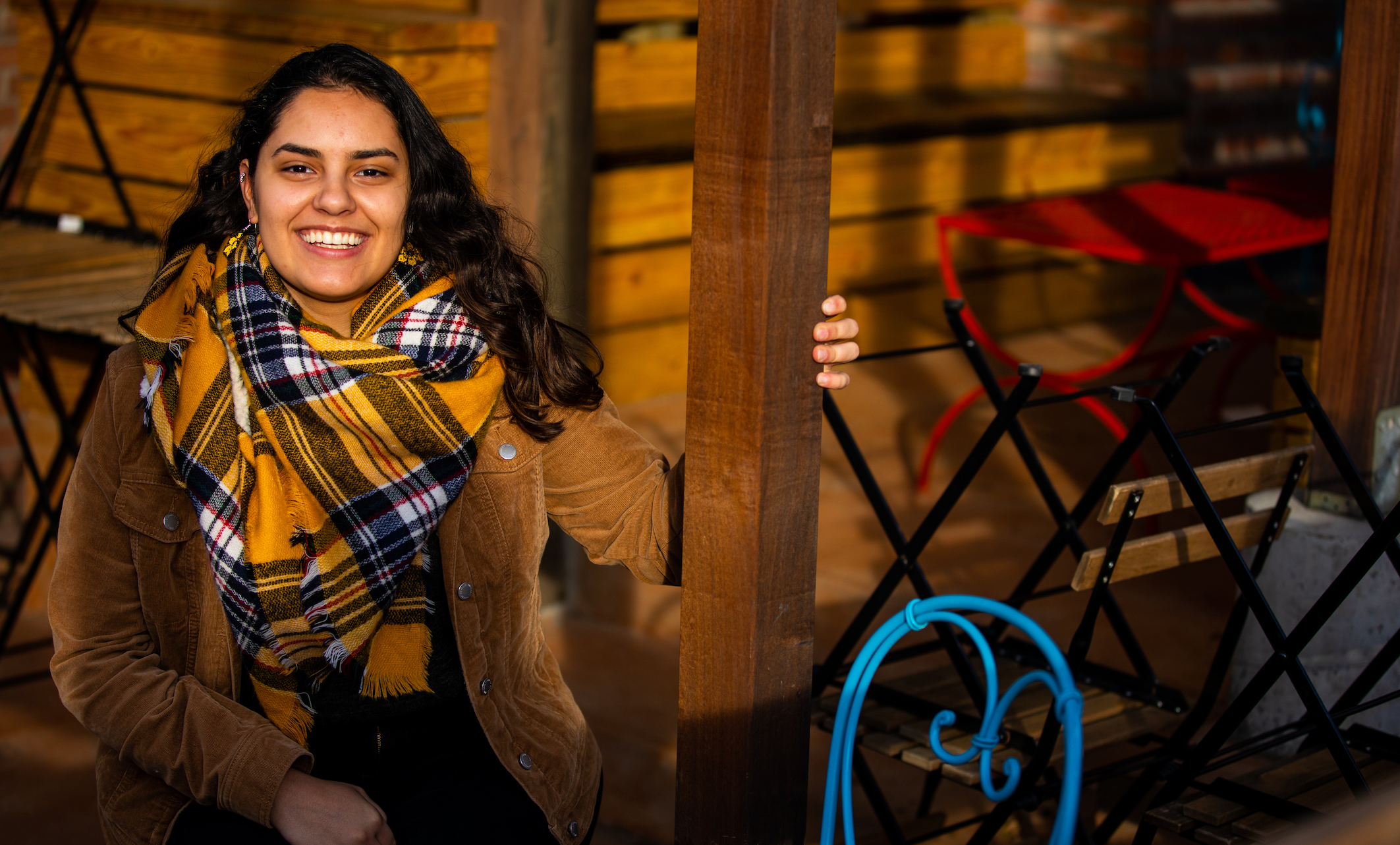
Adriana Suarez says UMKC community is key to success
Our ongoing story starts with people from around the world, converging here at UMKC. Get to know our people and you’ll know what UMKC is all about.
Adriana Suarez
Anticipated graduation: Spring 2023
Academic program: Honors College, Bachelor of Business Administration-Nonprofit Management, minors in Sociology and Latinx and Latin American Studies
Hometown: Kansas City, Kansas
Adriana Suarez started her freshman year living in the dorm, studying, working and hanging out with friends. Soon, the impact of the COVID-19 pandemic began turning everything upside down. Suarez lost her job and moved out of the dorm and in with her sister and was going to school online. Despite the turmoil, she’s focused and committed to finding her way through this challenging time with success.
Why did you choose UMKC?
I grew up in Kansas City, Kansas, and was familiar with UMKC because of the prestige and exposure of the school. It was only when I was awarded a scholarship through KC Scholars that I seriously considered attending the university. One of the main reasons I was attracted to UMKC was the diversity on campus compared to other campuses in the area.
"One of the main reasons I was attracted to UMKC was the diversity on campus compared to other campuses in the area."
Why did you choose your field of study?
Business degrees are very versatile, and I hope I can apply my knowledge of history and the culture of the Latinx community to further develop the Latino voice of the KC metro area.
When I entered college, I joined the Latinx Student Union where I was given the opportunity to listen to speakers present on important topics within the Latinx community. These events led me to discover my own passion for helping others and our growing Latino community.
What are the challenges of the program?
The biggest challenge is finding the intersectionality of each program. I must find ways in which each program can build upon the other to open opportunities to connect with the community not only as a student but also as a community member. The most important part about combining these programs includes adaptability -- I must be able to learn to adapt to changes in the environment that require me to learn skills that aren’t necessarily taught in school.
What are the benefits of the program?
The programs at UMKC are very versatile, and I feel as though I am able to make them my own. I have the chance to explore the business world while also discovering the cultural aspects of my community. The part I am most excited about is studying abroad for the next full academic year. I hope that this experience will challenge me to learn new cultural perspectives in the business world as well as the real world.
How has your college program inspired you?
I feel inspired to do more to help our community. Especially during moments of need like now where we need to lean on our community for support. I feel more inspired than ever to create change that will leave a legacy.
"I have the chance to explore the business world while also discovering cultural aspects of my community."
Since entering college, what have you learned about yourself?
The college experience has definitely built my sense of independence. Realizing what it takes to be an adult, I have discovered a growing sense of responsibility. Every day I aspire to grow as a person.
Attending college has allowed me to grow not only academically, but also creatively. I recently started a small handmade jewelry Instagram account called Xotu Jewelry. A lot of my work is inspired by the Wixárika better known as the Huichol. They are one of the few indigenous tribes in Mexico that have been able to preserve their traditions, while also finding new ways to express their vision of the world through art.
What do you admire most at UMKC?
The thing that I admire most about UMKC is the support system that it has provided me and other students. From faculty and advisors to friends, UMKC does not lack people who want to help. I have had the chance to work with amazing staff and meet people who I know will -- and have already -- made an impact on my life.
What’s the best piece of advice you have ever received from a professor?
Seek advice from only those people who are in the position that you want to be in.
What extracurricular activities are you involved in at UMKC?
I am currently a work-study student at the Multicultural Student Affairs Office on campus. I serve as the project liaison on the Enactus Fundraising Committee and the SAFC Representative on the Bloch School Student Association Committee. I am also a Peer Academic Leader with the UMKC PAL Program where I mentor and support students through their first years at the UMKC.
I am planning on studying abroad in Ireland (Fall 2021) and South Korea (Spring 2022). I participate in various programs on campus such as the Latino Student Union, the Avanzando Mentoring Program as well as the Association of Latino Professionals for America.
Do you have any scholarships?
KC Scholars has provided me the opportunity to attend school at the university level. KC Scholars gave me something set in stone when other parts of my life weren’t going so well. I am forever grateful for the opportunity.
"The thing that I admire most about UMKC is the support system that it has provided me and other students. From faculty and advisors to friends, UMKC does not lack people who want to help."
I am also a Hispanic Development Fund Scholarship recipient. When I was awarded the Hispanic Development Fund Scholarship, I knew that I was entering a “familia” - a family and community of Hispanic community members that cared for the wellbeing of each other and bettering the future.
I was awarded the 2020 Sherman and Irene Dreiseszun Scholarship through UMKC, and the Truman Foundation which will, in the future, contribute to my plans for studying abroad.
What do you hope to take from your experiences at UMKC into your professional career?
I hope that being active on campus through diverse programs will allow me to engage more in the community. I believe these experiences are great for opening doors in the future.
Feb 26, 2021
MSN interviews professor of pediatrics
Panel member Jay Portnoy, professor of pediatrics at the University of Missouri-Kansas City School of Medicine, said the race was on to stop the pandemic before new virus variants cause further disease. Read more.
Feb 26, 2021
She takes over after serving as interim general manager for the last 15 months.
Sarah Morris has been at UMKC since 2004. She takes over as KCUR’s and Classical KC’s general manager after serving as interim general manager for the last 15 months. Read more.
Feb 26, 2021
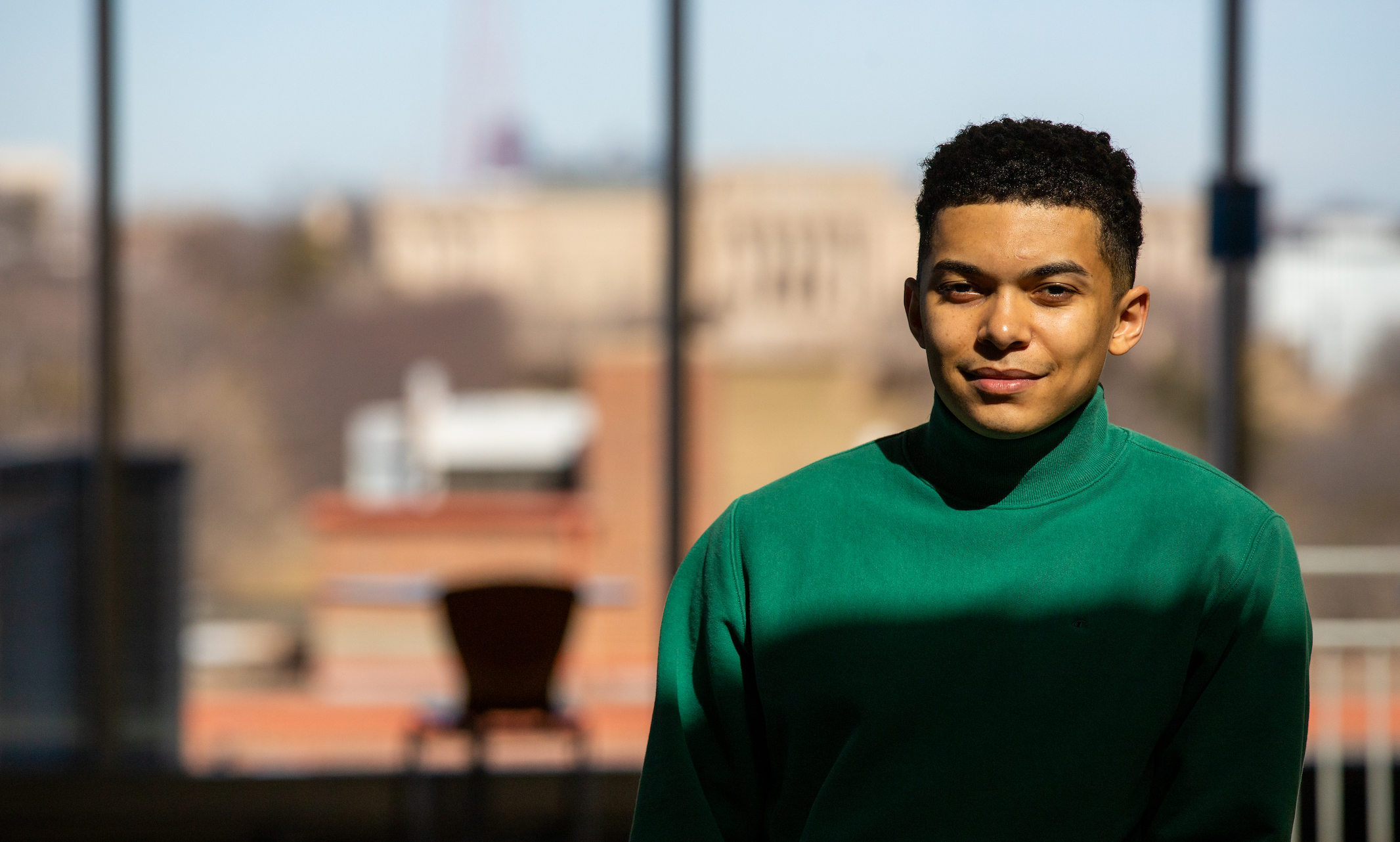
Brandon Henderson chose self-care during stressful period
Our ongoing story starts with people from around the world, converging here at UMKC. Get to know our people and you’ll know what UMKC is all about.
Brandon Henderson Hometown: Kansas City, Missouri High School: North Kansas City High School UMKC degree program: Political Science Anticipated graduation year: December 2021
Brandon Henderson was on a roll. He ran for UMKC Student Government Association (SGA) president last spring because he wanted to serve the student body and help lead through the COVID-19 crisis. In addition, he was interested in politics and wanted to part of the process to help correct issues that have affected society for generations: systemic racism, police brutality, mass incarceration. While he is still devoted to those issues, he decided to take a step back from his position last December. It was not an easy decision, but he’s finding a new definition of success.
"Last Fall I was sprinting. I was trying to do everything and be everything." - Brandon Henderson
“Last fall I was sprinting. I was trying to do everything and be everything,” Henderson says. “For a while it was working. I was doing it. I was going to three different events a week and organizing activities through SGA – like the Critical Conservations event with Mayor Quinton Lucas.”
Henderson was committed to his position.
“I felt as though any minute I wasn’t spending doing something for students was a minute wasted.”
Henderson found he was making less time for personal needs – eating well, sleeping, exercise and school work.
“That's part of the job of being an elected official. You don’t want to disappoint people, and I think I went into it trying to do everything possible not to do that. Then I began to realize that I'm not Superman. I can't fix everything.”
Henderson’s challenge became not being able to say, “No.”
“I kind of rigged the game against myself,” he says. “There was no way I could meet the expectations I’d set for myself, so when I didn’t it just reinforced my negative feelings.”
He found himself thinking that it would be nice to step away from the office, but he didn’t think he could do that. He felt determined to stick it out.
“Then I reminded myself that [former Missouri state legislator and Missouri Secretary of State] Jason Kander, who is someone I look up to, stepped away from his bid for Kansas City mayor because he needed to focus on treatment for post-traumatic stress disorder or PTSD.
And I thought, ‘If he can walk away from that, why can’t walk away from this?’”
Henderson knew that he could have gone through the motions and finished his term.
“But our students deserved somebody in the role who could give 100%.”
“I feel like I’m living my life in the moment. I can be present and appreciate what is happening.”
Mahreen Ansari, (BA ’22) who was the SGA vice president at the time, agreed to assume the role of president.
Calling the SGA officers to tell them each one personally was difficult, but Henderson was relieved once he had spoken to everyone. After resigning, Henderson sought help at the Counseling Center.
“It took a little while to get in, but I met with a counselor and they have so many resources for self-wellness. I would recommend them. I’ve heard from other students that they feel the same stress and anxiety I did. I was worried that I was letting people down, but instead other people saw themselves in me, which is reassuring.”
Henderson is sleeping better, eating better, exercising more and doing better in school. He has two semesters left and is focusing on finishing strong.
“I feel like I’m living my life in the moment. I can be present and appreciate what is happening.”
Feb 25, 2021
NBC News interviews Mary Anne Jackson
Mary Anne Jackson, a pediatric infectious diseases expert and dean of the medical school at the University of Missouri-Kansas City, said state and local officials would need to do more to convince people in several groups that the vaccines are safe and effective. Read the NBC News story, which was picked up by Yahoo News.
Feb 24, 2021
Kansas City Star highlight's Jannette Berkley-Patton’s research
UMKC professor Jannette Berkley-Patton’s research reveals the importance of having Black churches involved in keeping communities healthy. Pastors, she says, are trusted sources of information. Read the full story.
Feb 24, 2021
Bloch School student shares his story with KMBC
Abdurahim Sharif is a VFW scholarship recipient living a life of service. He is a student at the Henry W. Bloch School of Management at UMKC. Read the article and watch the newscast.
Feb 24, 2021
KMBC interviews Beth Vonnahme
“For a lot of folks who join more of these more radical or alternative groups, or believe in conspiracy theories, a lot of it comes back to that notion that, they really want to belong to something that’s bigger than themselves,” said Beth Vonnahme, associate professor, department of political science at University of Missouri-Kansas City. Read the story and watch the newscast.
Feb 23, 2021
The Kansas City Business Journal and Fox4KC talked to Alec Rodgers
Alec Rodgers graduated from UMKC Bloch School last year with a bachelor's of business administration and a double major in finance and entrepreneurship. Read the Kansas City Business Journal article. Read the Fox4KC story and watch the newscast.
Feb 23, 2021
KC Studio features Karen Brown
Karen Brown is an assistant professor of dance at the UMKC Conservatory. Read the article.
Feb 23, 2021
UMKC doctoral student is chosen
Jessica Bassett is currently working to complete her doctorate in education at the University of Missouri-Kansas City. Read the article from the Lawrence Journal-World. (subscription required)
Feb 22, 2021
Sociology professor quoted in MSN article
Michelle Smirnova, an associate professor of sociology at the University of Missouri-Kansas City, told Hill.TV that many Americans still risk becoming homeless during the coronavirus pandemic despite a federal moratorium. Read the full article.
Feb 21, 2021
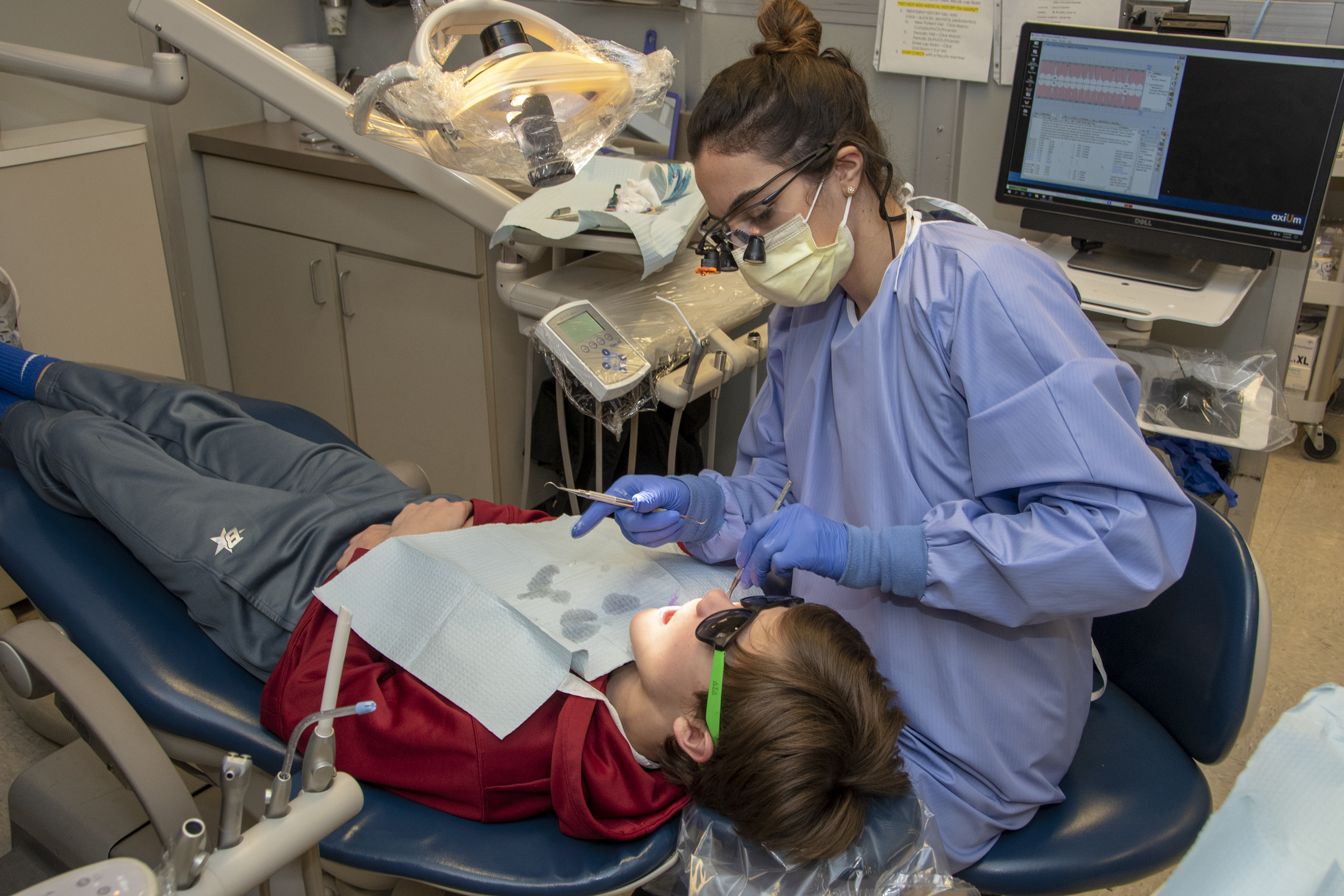
Helping children under 3 receive a healthy start
Taking care of children’s teeth and gums right from the start is a vital part of overall health, so the UMKC School of Dentistry offers a free examination for children under 3 years of age.
The school also for years has participated in Children’s Dental Health Month, an educational effort every February by the American Dental Association.
“We offer the free initial exams year-round in our pediatric clinic,” said Brenda Bohaty, D.D.S., chair of the Department of Pediatric Dentistry. “That exam is recommended by the time a child is 12 months old, or when the first tooth starts appearing.”
The UMKC pediatric clinic gives young patients a bright, welcoming atmosphere and top-notch care supervised by Bohaty and other faculty. And it gives students important experiences that they will need as they train to become general dentists.
“We emphasize the importance of the age 1 visit in training all of our students,” Bohaty said. “The benefits of dental health for overall health can’t be overemphasized.”
Tooth decay is the most prevalent disease of childhood, occurring four times as frequently as asthma, but in almost all cases is preventable. The American Academy of Pediatric Dentistry, in the recent second edition of its State of Little Teeth Report, notes that children’s tooth decay is down in the past four years, but nearly half of children ages 6 to 11 and more than half of children ages 12 to 19 in the U.S. still are affected by tooth decay. And among older children, the decay affects permanent teeth.
Besides starting checkups by age 1, the academy recommends having a parent or other caregiver brush with a child for at least two minutes twice a day, limiting sugary drinks and snacks and paying attention to toothaches at any age.
“We want every child to have a healthy start,” Bohaty said, “and we hope parents take advantage of our free initial checkups for children under 3.”
Call 816-235-2145 for an appointment in the pediatric clinic
Feb 19, 2021
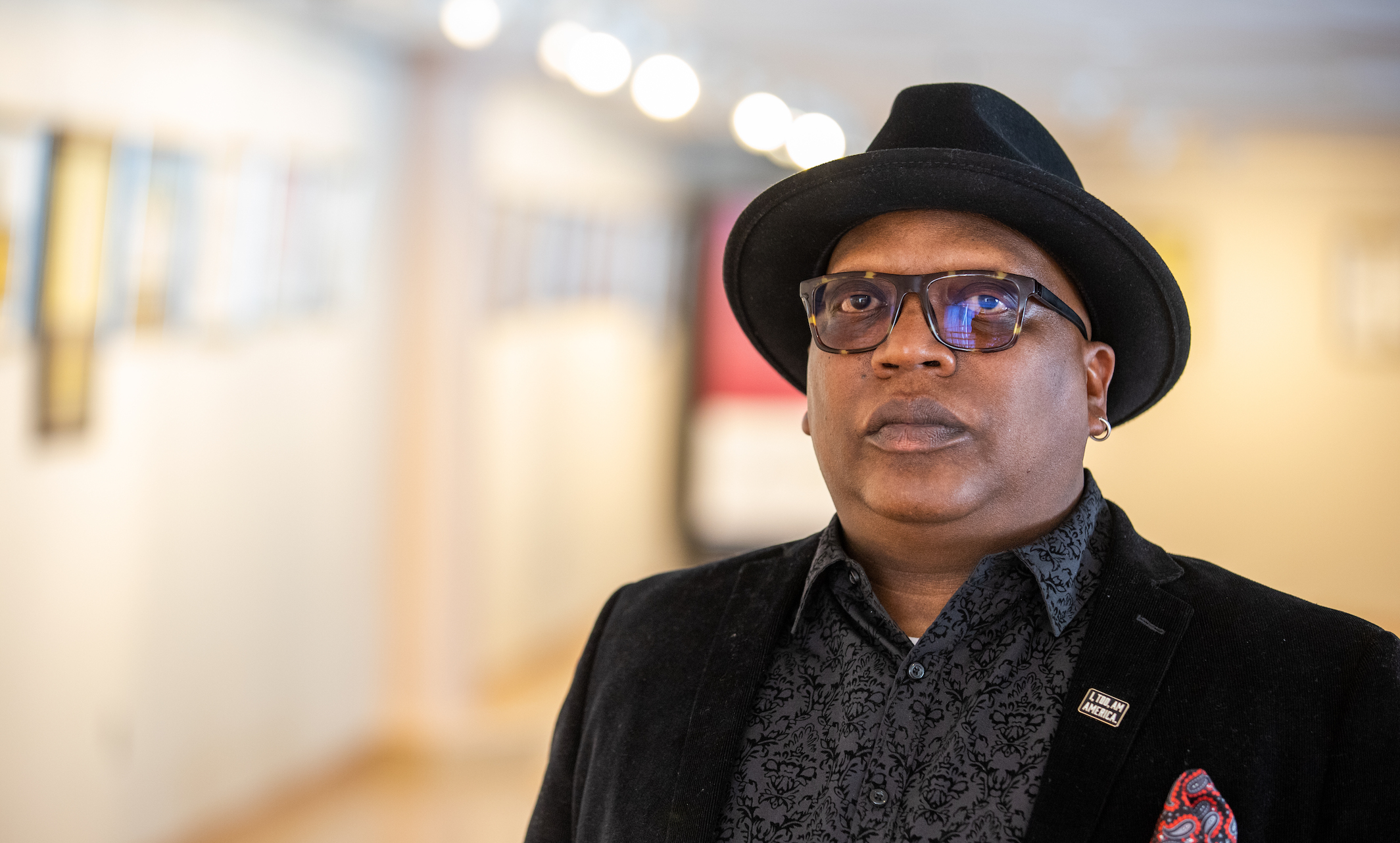
Glenn North is executive director of Bruce R. Watkins Cultural Heritage Center
Glenn North (MFA '20), the first poet laureate of the 18th and Vine district and executive director of the Bruce R. Watkins Cultural Heritage Center, wrote a poem based on Rudyard Kipling’s “If” for his cousin, Don Cheadle, to read in his UMKC commencement speech. While this may have introduced people to his work, he has a long history writing – and reading – his poetry in the community.
“Don and I talked about ideas for his speech,” North says. “He asked me if I had something that fit. I didn’t, but there’s so much wisdom in Kipling’s ‘If.” My grandmother gave me the poem when I was young. I still use it as a beacon.”
Often in his career as a poet, North has responded to images or concepts – some provided from friends as prompts – to create his poems.
The painting, “Lynch Family” by Joseph Hirsch, with its bold, mottled cobalt blue background, features a Black woman holding her baby against her shoulder in one hand – his hand raised and wrapped around a rattle – while her face rests in her other hand. It’s a striking image of innocence and despair.
Glenn North at the Bruce R. Watkins Cultural Center exhibit of "Eight Days in April: the Story of the 1968 Uprising."
North feels empathy is an important component of being a writer.
“I never felt the latitude to write about a daffodil,” North says. “I’ve felt a responsibility to respond to the triumphs and the tragedies of the Black experience.”
Along those lines, while North participated in leading classes and youth poetry workshops and was grateful for the work and experience, he began to feel as if he needed to focus his attention on writing for himself.
“I was frequently writing for hire, and I was fortunate to be able to generate revenue, but it’s a different process. I had to start saying, ‘no.’ At that point I needed to exercise my voice.”
“I never felt the latitude to write about a daffodil,” North says. “I’ve felt a responsibility to respond to the tragedy of the Black experience.” - Glenn North
He found connection with other Black poets through a fellowship with Cave Canem. The organization’s founder, Cornelius Eady and Toi Derricote, created the annual workshop for emerging Black poets and pairs them with veteran writers and provides book-publishing opportunities.
“That’s where I found my writing community,” North says. “’Cave Canem’ is a Latin phrase which translates as ‘Beware the Dog!’ The organization’s mission is to protect the interests of Black poets as fiercely as a dog protects its owner’s property. In so doing, more Black poets will be added to the canon of literature.”
Following the Black Lives Matter demonstrations last year and the revelation that the extent of what some believed was a fringe white supremacy movement was far more prevalent and organized than many people understood.
“I view last year as a cleansing of sorts. If you want clean clothes, you can’t just put them in the washing machine soap and water, you need an agitator. Last summer’s uprising and unrest was necessary for reform. I hate the way it happened, but it brought attention to how Black people are treated by the police.”
“As someone who loves language, I believe some of the terminology we use has helped to change attitudes,” he says. “For instance, if you call a white person racist, they will vehemently resist that label, but if you talk to them about white privilege, they begin to understand that privilege is connected to a racist power structure. At that point, their eyes begin to open. Then we can begin to move toward progress and equity.”
Beyond his poetry, North is engaged in the community through his role as executive director of the Bruce W. Watkins Heritage Center. He’s focused on raising the center’s visibility and expanding its role in the community.
For Black History Month, the center will host an exhibit, Eight Days in April: The Story of the 1968 Uprising in Kansas City, in partnership with the LaBudde Special Collections at the University of Missouri-Kansas City library and the Prospect Business Owners Associaton.
“There’s a lot going on behind the scenes,” North says. “By 2022, we will roll out new programs that will engage the community in a meaningful way.”
North wants the community center to help heal racial trauma.
“A couple of years ago, communities were removing monuments to systemic racism. These monuments say a lot about who we are.
“I view last year as a cleansing of sorts. If you want clean clothes, you can’t just put them in soap and water. You have to agitate.” - Glenn North
In Germany, there are no statues of Nazis statues or flags with swastikas waving around, but there are stumbling stones outside the houses where Jewish people were taken. We need to ask, ‘What do we allow to represent who we are?’ and study that.”
As a member of the Community Remembrance Project, one of North’s current projects is the re-installation of the Levi Harrington Memorial in Case Park in Kansas City. Harrington was a victim of lynching. In 1882, he was falsely accused of shooting a police officer. He was abducted from police custody and hung from the Bluff Street Bridge. He was one of at least 60 victims of racial terror lynching in Missouri.
“The same brand of hate that led to the lynching of Mr. Harrington was on display the night the perpetrators vandalized the marker” North says. “The work I do at the center and the work I do as a poet is an effort to combat racism in all its manifestations.”
Feb 19, 2021
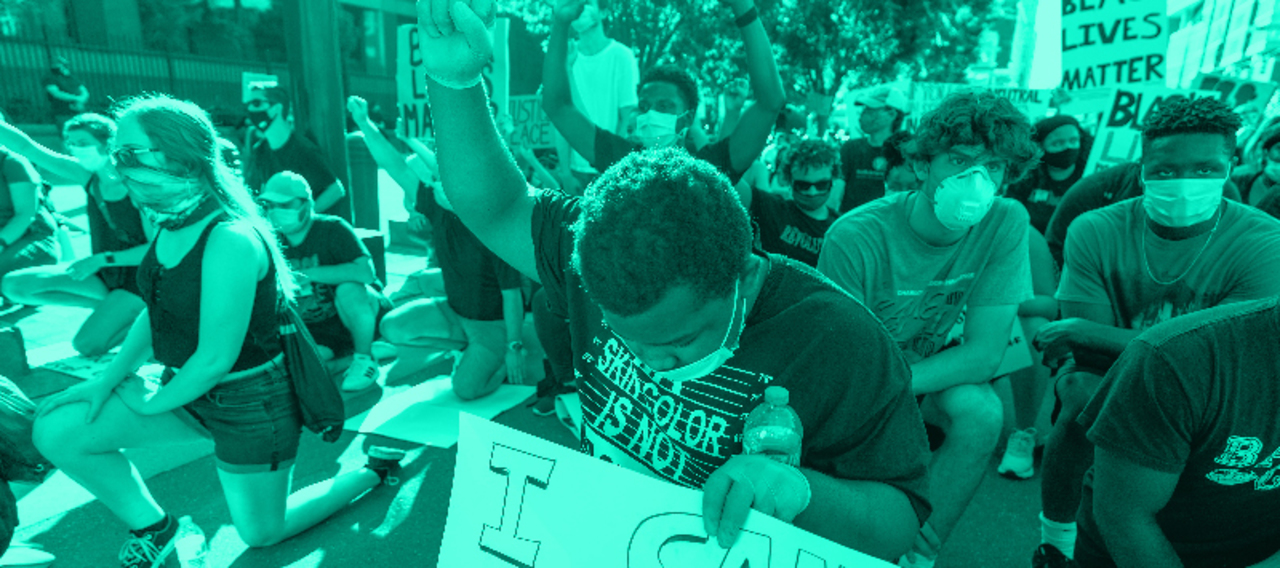
A discussion about how communities of color can gain and deploy influence
Local political and community leaders participated in a virtual panel discussion, “Politics and the State of Black and Brown America.”
The event Feb. 18 was the seventh in the Critical Conversations series of panel discussions addressing systemic racism, sponsored by the UMKC Division of Diversity and Inclusion.
UMKC people are taking thoughtful action on campus and in our community to ensure lasting and comprehensive change through Roos Advocate for Community Change, a campus-wide effort announced in June.
The Critical Conversations are part of that initiative. The goal of each discussion is to enlighten, educate and explore the causes and potential cures for racism.
Panelists for the Politics session included:
Tom Carignan, Overland Park City Council member
Irene Caudillo, president and CEO of El Centro
Kelvin Simmons, co-founder of the Nexus Group, a full-service government affairs firm
Beth Vonnahme, associate professor of political science and associate dean of the College of Arts and Sciences at UMKC
Gary O'Bannon (moderator), executive-in-residence, Henry W. Bloch School of Management
Charisma Sewell (co-moderator), UMKC political science major
Excerpts from the conversation are below. View the recording of the conversation.
Job opportunities for people of color in the private sector
Caudillo: It has been proven that if you have diverse staff, it improves decision-making and enhances growth. In the private sector, the representation isn’t there. Even in the public sector we still don’t see us in leadership positions … What we truly seek are opportunities in companies that are breaking down the barriers leading to those leadership positions.
Simmons: The private sector traditionally has to be pushed into moving. If they’re not pushed, it’s business as usual.
Advocacy for change
Simmons: Decades ago, there was a large grassroots movement to pressure investment funds to divest from investments in South Africa to protest apartheid. We ae seeing something similar today with the MeToo movement and the Black Lives Matter movement. Grassroots movements can be effective as long as they are large enough, have the right message and have the courage to protest.
Carignan: With the technology and communication capabilities we have today, it is easier to organize a movement to push corporations to change.
Are we lacking a central leader like Martin Luther King Jr.?
Carignan: Hispanics come from 20 different countries with all kinds of different political and social structures. Our population is so diverse that it’s difficult to find that central leader.
Simmons: In the African American community, drawing from our biblical culture, Moses was our figure, the one who delivered us. We grew up understanding that there was a deliverer … We’re shifting today to where social media moves people and the voice of people in a very significant way.
“What we truly seek are opportunities in companies that are breaking down the barriers leading to those leadership positions.” - Irene Caudillo
Tax abatements for developers
Simmons: These incentives were created to address blight and to create job opportunities in distressed communities. It has become something vastly different from what it was intended to do.
Government-sanctioned voter suppression
Vonnahme: There are ways that individual voters can work against these initiatives. One is to act through state legislatures. One thing they benefit from is low public attention; it’s easy to pass policies when no one is paying attention. Ballot initiatives can also be used in some states to expand voter access. The courts are able to come in to defend the 15th amendment requirement for fair and equal voting. You also can mobilize grass-roots efforts to help people meet the requirements.
Suffrage is the ultimate right in a democracy. This is something we should all be concerned about. It does give me a little bit of hope that a lot of this has been coming to light ... the best defense is informed, involved community groups.
Caudillo: Community-level activity played a vital role in last election. We have to continue to educate the community, get people registered, get them to the polls.
Strategies that can lead to desired political outcomes
Caudillo: Holding the people who represent us accountable. Civic engagement beyond the vote is really important.
Vonnahme: Policy success comes from electoral success. Recruitment, funding and voter mobilization are all vital. Electoral success comes from good candidates with resources.
Carignan: Build relationships with elected officials. Become a resource for them. Never go alone – you want them to know you have people behind you.
“Suffrage is the ultimate right in a democracy. This is something we should all be concerned about.” - Beth Vonnahme
Police reform
Vonnahme: You can have policy change imposed from above; leadership change is another means. Culture shifts are really important but really hard to impose. They require fundamental shifts in membership, or for the membership to undergo fundamental change. This one is the most effective but the hardest to bring about.
Simmons: The role of police unions is very powerful. Under union contracts, police officers have certain protections the average citizen does not have. It allows cases to be handled differently than if a citizen did the same thing.
Carignan: In Overland Park, a citizen panel signs off on police department promotions and demotions. A separate civilian review board reviews complaints.
The digital divide
Caudillo: The gap continues to widen. The same people who lack digital resources are also more likely to struggle with food insecurity, and to be essential workers exposed to COVID. When virtual learning was introduced at the onset of the pandemic, the resources were not there in communities of color.
Political and civic education
Caudillo: We’ve lost the civics education we used to have. Our organization is stepping in to do those things now, like taking kids to the capitol, letting them see the legislature in action. On college campuses, we have to have mobilization.
Vonnahme: We teach a sanitized form of politics. We don’t explain the nuance behind politics. We have to talk about politics and civics in a more realistic way – talk not just about compromise, but also about conflict.
Building trust in the coronavirus vaccine
Caudillo: Throughout history transparency just wasn’t there, so there is mistrust in the system overall. When it comes to health care, we’ve got to listen to the community, find out what those issues are, what those concerns are, and use the people who have already established trust in the communities of color, like pastors and community organizations.
Feb 19, 2021
Chancellor Mauli Agrawal weighs-in on Health Sciences District development
“The UMKC Health Sciences District is truly a center for patient care, research, teaching and learning in the heart of the Kansas City area,” said UMKC Chancellor Mauli Agrawal. Read more.
Feb 19, 2021
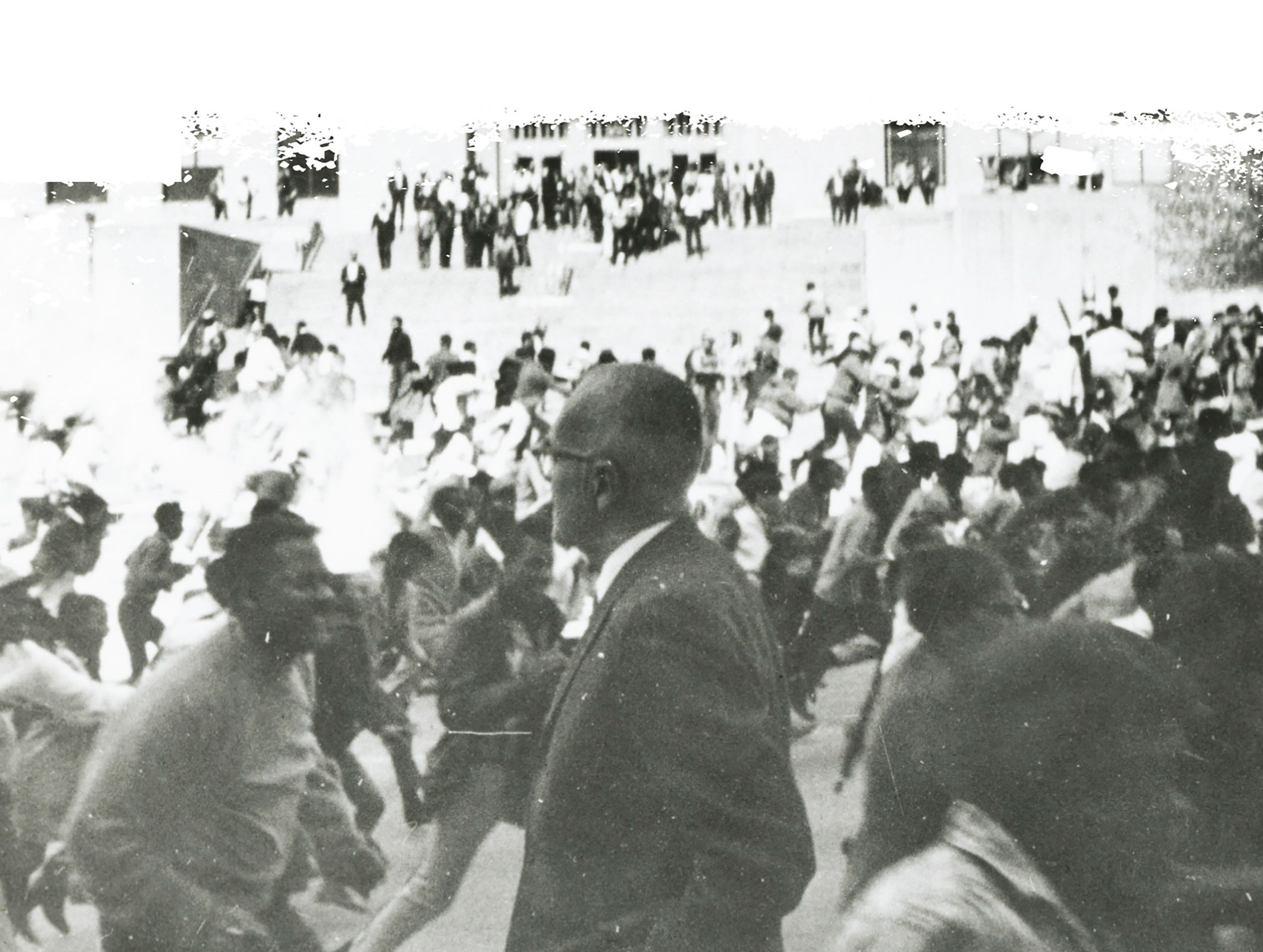
Missouri Humanities Council grant supports opening program
The UMKC Foundation, in partnership with the Bruce R. Watkins Cultural Heritage Center and Museum and Prospect Business Association, has received a $2,020 grant from the Missouri Humanities Council in support of the opening event for the exhibit “Eight Days in April: The Story of the 1968 Kansas City Uprising.” The free, virtual opening is scheduled for 6 p.m., Thursday, Feb. 18. Reservations for the opening can be made online.
The opening event will feature a panel discussion about the eight days surrounding the assassination of Martin Luther King Jr. in April 1968 and how the impact of those days continues to shape Kansas City today.
The discussion will be moderated by Dia Wall, KSHB anchor and reporter; and features panelists Jason Cooley, community initiative officer for the Chief of Police, Kansas City Police Department; Delia Gillis, professor of History and Africana Studies program coordinator, University of Central Missouri; Don Maxwell, Revitalize Prospect; Glenn Rice, journalist, Kansas City Star; and Susan Wilson, recently retired vice chancellor for UMKC Division of Diversity and Inclusion.
The exhibit, “Eight Days in April: The Story of the 1968 Uprising in Kansas City,” draws upon historical materials from the UMKC LaBudde Special Collections and Marr Sound Archives. The exhibit is currently available as a digital exhibit through the UMKC Libraries’ website and will be available to view in person at the Bruce R. Watkins Cultural Heritage Center and Museum, 3700 Blue Parkway, when it is safe to open to the public. The digital exhibit includes an opportunity for community members to participate in a survey about renaming the 1968 Riot Collection.
The Missouri Humanities Council is the only statewide agency in Missouri devoted exclusively to humanities education for citizens of all ages. It has served as a state affiliate of the National Endowment for the Humanities since 1971.
Feb 17, 2021
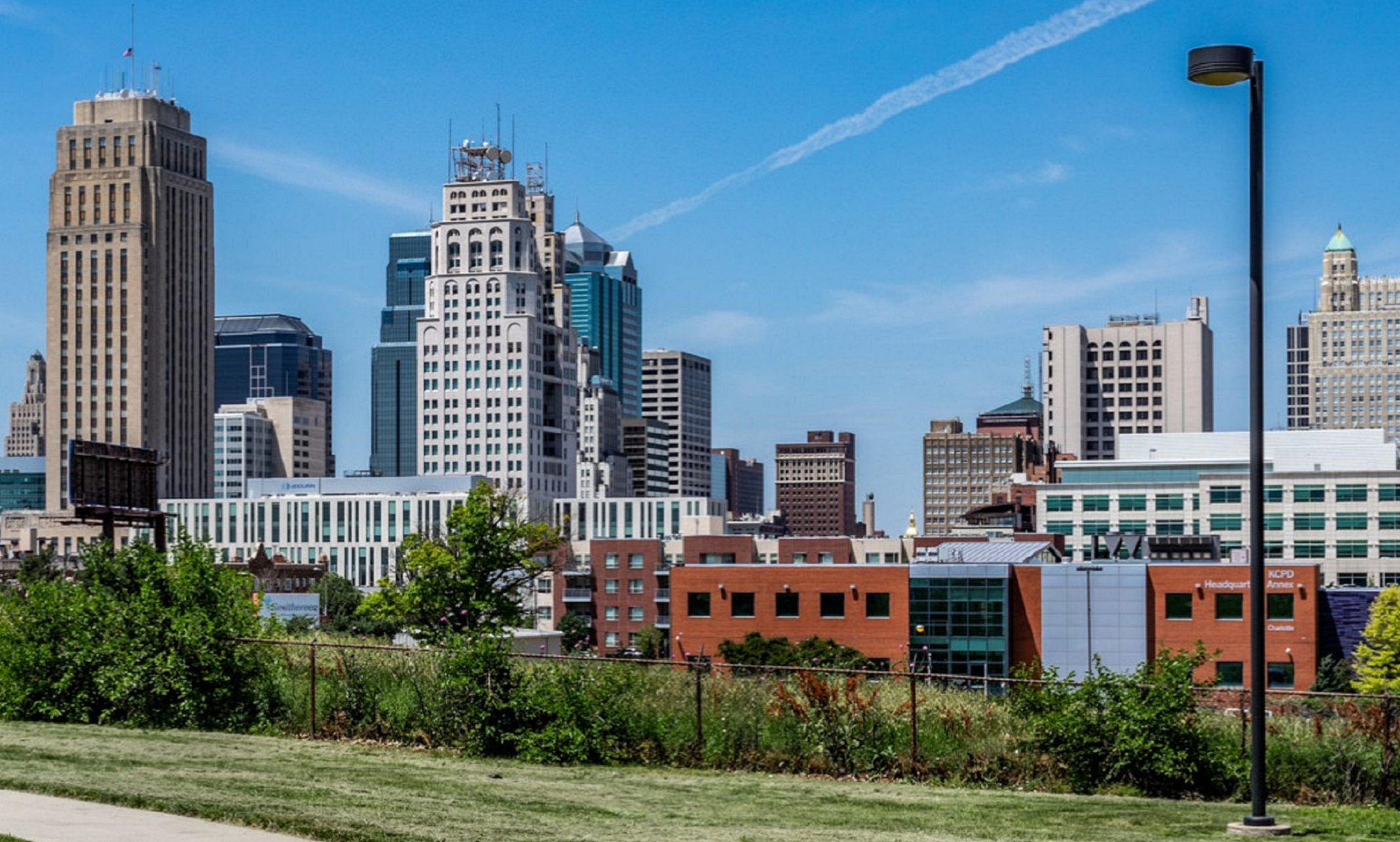
Community groups, UMKC researchers collaborate on public health efforts
The UMKC Health Equity Institute has chosen eight collaborative research projects to benefit from “mini-grants” of $1,700 to $2,200.
Each project pairs a community organization and a UMKC researcher to explore ways to improve health care access for underserved communities. The research topics in this first round of grants include COVID-19 effects on family resilience and easing the trauma of shooting victims. The community partners range from a tenants’ organization and the Kansas City Housing Authority to Children’s Mercy and Truman Medical Centers.
“One goal with these mini-grants is to encourage the kind of research that results in sustainable initiatives, instead of efforts that can fade away after a big grant runs out,” said Jannette Berkley-Patton, Ph.D., a professor in the School of Medicine.
Berkley-Patton, the director of the Health Equity Institute, a UMKC initiative launched by Chancellor C. Mauli Agrawal, added: “We received some great proposals from teams that include strong community partners. We also assigned research mentors to any grant recipients who didn’t already have an expert researcher on board.”
Here are descriptions of the projects receiving the mini-grants, along with their UMKC affiliated partner and community partner.
Refugees Raising Black Boys in the U.S.
To explore parental strategies of Congolese, Sudanese and Somali refugee parents raising sons in a racially hostile climate. The UMKC partner is Johanna Nilsson, Ph.D., professor of psychology. The community partner is Sarah Payton with Jewish Vocational Services.
A Qualitative Analysis of Patient Feedback on Early Mental Health Intervention for Nonfatal Shooting Victims
To conduct interviews with victims and tailor treatment approaches to better serve the needs of predominantly Black patients, whose voices have been historically underrepresented in the development of treatment approaches and care decisionmaking. The UMKC partner is Joah Williams, Ph.D., assistant professor of psychology. The community partner is Rosemary Friend with Truman Medical Centers.
A Pediatric Health and Community Partnership to Improve Family Resilience During the Coronavirus Pandemic and Beyond
To measure the impact of the coronavirus pandemic on trauma exposure and the physical, mental and emotional well-being of children and families from underserved communities in the Kansas City metropolitan area. This study will help inform the development of interventions to increase resilience in families during the COVID pandemic and beyond. The UMKC partner is Andrea Bradley-Ewing, who holds master’s degrees in public administration and psychology and is director of community engaged research at Children’s Mercy. The community partner is Gerald Douglas, director of resident services at the Kansas City Housing Authority.
Pastors’ Spouses Study
To explore the impact of COVID-19 on churches and pastors' spouses and develop strategies and tools to support them as they support their churches and communities. The UMKC partner is LaVerne Berkel, Ph.D., associate professor in the School of Education. The community partner is Nordia Ikner with the Linwood Boulevard SDA Temple.
Increase Health Equity by Improving Neighborhood Routes to Schools and Parks
To increase physical activity by Central Middle School students through built environment improvements to better connect the neighborhood to the school and Central Park. This project will allow students to have a voice in this collaborative process among schools, city services, non-profit organizations and researchers. The UMKC partner is Amanda Grimes, assistant professor of nursing and health studies. The community partner is Laura Steele, education director at BikeWalkKC.
Fruit and Veggie Connect
To explore the feasibility to connect fresh produce from a community garden to families with young children who are enrolled in a home visiting program. The UMKC partner is Laura Plencer, M.D., associate professor of pediatrics. The community partner is Sommer Rose, research program manager at Children’s Mercy Hospital.
What Do We Want? Housing! When Do We Want It? Now!
To analyze how Kansas City Tenants — a grassroots organization with the goal of organizing to ensure that everyone has a safe, healthy, accessible and affordable home in Kansas City, Missouri — was able to rapidly develop a robust membership base and gain traction among city, state and national government officials. To also identify where the organization has yet to make inroads and why, and how it is addressing new challenges brought about by the 2020 pandemic, which is aggravating the housing crisis. The UMKC partner is Michelle Smirnova, Ph.D., an assistant professor in the Department of Sociology and an associate faculty member in Women, Gender and Sexuality Studies. The community partner is Tara Raghuveer, founding director of KC Tenants.
Green Team Toolkit
The Green Team Toolkit brings local youth together with neighborhood residents to improve their parks, trails, and vacant lots. The project seeks to develop a process where neighborhood residents and youth can work together to create a plan to improve the natural and built environment in their community. The UMKC partner is Panayiotis Manolakos with the Department of Economics. The community partner is Brenda Brinkhous-Hatch with the Groundwork Northeast Revitalization Group (Groundwork NRG).
Feb 17, 2021
Jason Martin was renowned for commitment to students
Jason Martin was an associate professor in the Department of Communications Studies, known for his dedication to helping students succeed.
Martin (1977-2021) joined UMKC in 2011, earning promotion to associate professor with tenure in 2020. He taught courses in interpersonal and public communication. His research on intercultural and cross-cultural communication appeared in peer-reviewed journals and books, and he shared his work at regional, national and international conferences.
“Jason spoke from the heart when engaging students. He always had time for students and spent long hours in his office mentoring, motivating and inspiring,” said colleague Peter Morello, associate professor of journalism. “Whenever I stopped by Jason’s office to ask if he wanted to grab lunch or coffee, he was either with a student or he’d say, ‘No man, I am waiting for a student.’ His commitment to students was resolute and his contributions promise to be long-lasting.”
Communications Studies is a department of the College of Arts and Sciences. Interim Dean Kati Toivanen said Martin’s death is “a tremendous loss for our entire UMKC community, as his presence and work embodied a spirit of kindness and generosity that touched many of us.”
Martin chaired the Academic Review Subcommittee for UMKC’s Intercollegiate Athletics Committee, was a member of the IAC Executive Council, served on UMKC’s Access to Success Delivery Team and was a member of the 2014-2015 University of Missouri Faculty Scholars Program. He was also active in the community, including his devoted service to Big Brothers/Big Sisters of Kansas City. He earned two undergraduate degrees and a Ph.D. from the University of Kentucky.
"Jason and I both started at UMKC during the Fall 2011 semester. Over nearly a decade I came to know him as a dedicated scholar, caring instructor and good friend,” said colleague Steven Melling, assistant teaching professor of communications studies. “He had an impact on everyone he met, and inspired many students to do their best in the classroom and beyond."
Donations for a campus memorial for Martin can be made at this link.
Feb 17, 2021
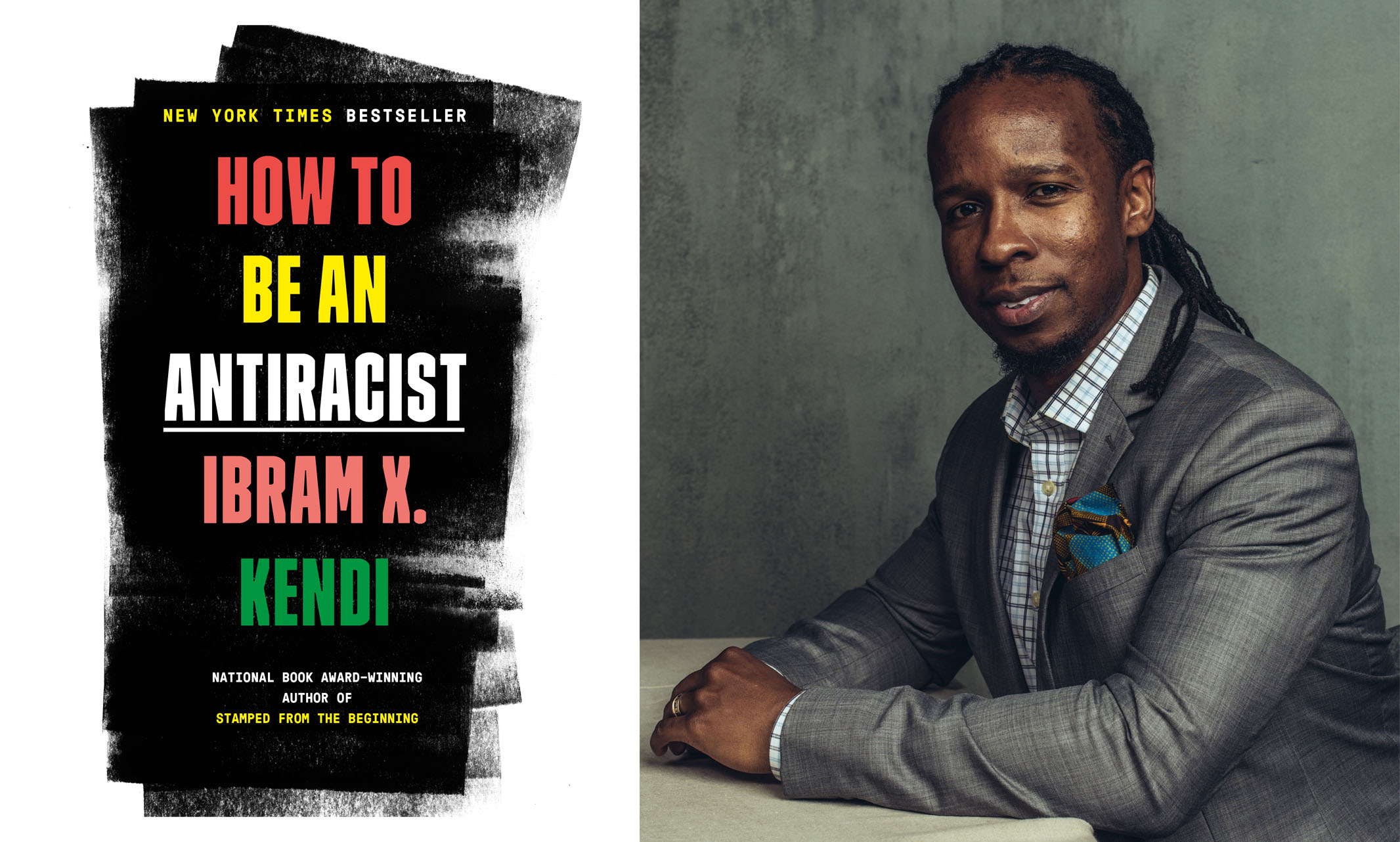
Ibram X. Kendi delivers 2021 Martin Luther King Lecture
Imagine a doctor sitting down with you and telling you that you have cancer. Because that information makes you feel bad, is it an attack? Or is it the first step in a journey toward healing?
Now, replace the word “cancer” with “racist,” and try to think about it the same way. That was the complex and nuanced message shared by author Ibram X. Kendi in the 2021 Martin Luther King Lecture, sponsored by the Division of Diversity and Inclusion at the University of Missouri-Kansas City.
Kendi, the author of numerous books including “How to Be an Antiracist,” said that “racist” and “antiracist” are not fixed categories; people move in and out of the categories based on their thoughts and actions. “To be antiracist is to actually admit to times when you are being racist,” Kendi said.
When people are confronted with knowledge that their statements or actions are racist, he said, they should view that message as a diagnosis, not an attack – a message from someone who wants them to get treatment and help.
“They should realize that to be antiracist is to accept that diagnosis, to accept that when you supported a policy that specifically repressed Black wealth, that is a racist policy,” he said.
The 2021 lecture was delivered in a question-and-answer format, in a dialogue between Kendi and Mikah Thompson, J.D., associate professor in the UMKC School of Law. The wide-ranging discussion covered topics ranging from antiracism to the coronavirus pandemic and the Jan. 6 insurrection at the U.S. Capitol.
Kendi also said it is important to differentiate between the terms “racist” and “racism.” While individual thoughts, statements and actions can be racist, “racism is fundamentally institutional, fundamentally systemic, fundamentally structural. Individuals do not practice racism. Institutions do.”
Whether an individual is behaving in a racist manner is a question of whether those actions are upholding the structure of racism, Kendi said. “As individuals, we are either upholding, or challenging, the system of white supremacy and racism. Are we as individuals resisting this system, or are we upholding it?”
An example of racist thinking that went largely unnoticed, Kendi said, was the reaction by many to statistics showing that infections and deaths from the coronavirus were significantly higher among people of color.
“The immediate response was, ‘what are those people doing wrong?’ The antiracial response is, ‘what policies and practices, historic and current, are leading to those disparities?’ Blacks are dying at higher rates, not because of having more preexisting conditions or not taking the pandemic seriously enough. It was less access to health insurance; it was that Blacks are more likely to be working in situations where they are not able to work from home,” he said. “Even middle-income Black folks are more likely to live in neighborhoods with higher levels of air and water pollution.”
Kendi said denial of racism was widespread as people reacted to the Jan. 6 insurrection.
“Americans say, ‘This is not who we are. There are not attempted coups in the United States of America.’ People who say that have not read American history, in which there was coup attempt after coup attempt after coup attempt during Reconstruction. They deny this country was founded on both racism and freedom. They want to say it was just founded on freedom.”
Americans need to recognize the racist roots that drove the insurrection, Kendi said.
“If you do not acknowledge that white supremacists are the greatest domestic terrorist threat of our time, will elected officials have the will and the resources to respond to the threat?” he asked. “People can’t accept that the most dangerous faces in America are white.”
Kendi is the Andrew W. Mellon Professor in the Humanities at Boston University and the founding director of the B.U. Center for Antiracist Research. He is the author of many books including “Stamped from the Beginning: The Definitive History of Racist Ideas in America,” which won the National Book Award for Nonfiction, making him the youngest-ever winner of that award. In 2020, Time magazine named Kendi one of the 100 most influential people in the world.
Beginning with the Rosa Parks Lecture on Social Justice and Activism in 2007 and annually since 2009 with the Martin Luther King Lecture Series, the Division of Diversity and Inclusion honors these individuals’ tremendous contributions to furthering civil rights by bringing national thought leaders to campus, who provide insight and advocacy to current civil rights issues of education, economic and justice system inequalities.
Feb 16, 2021
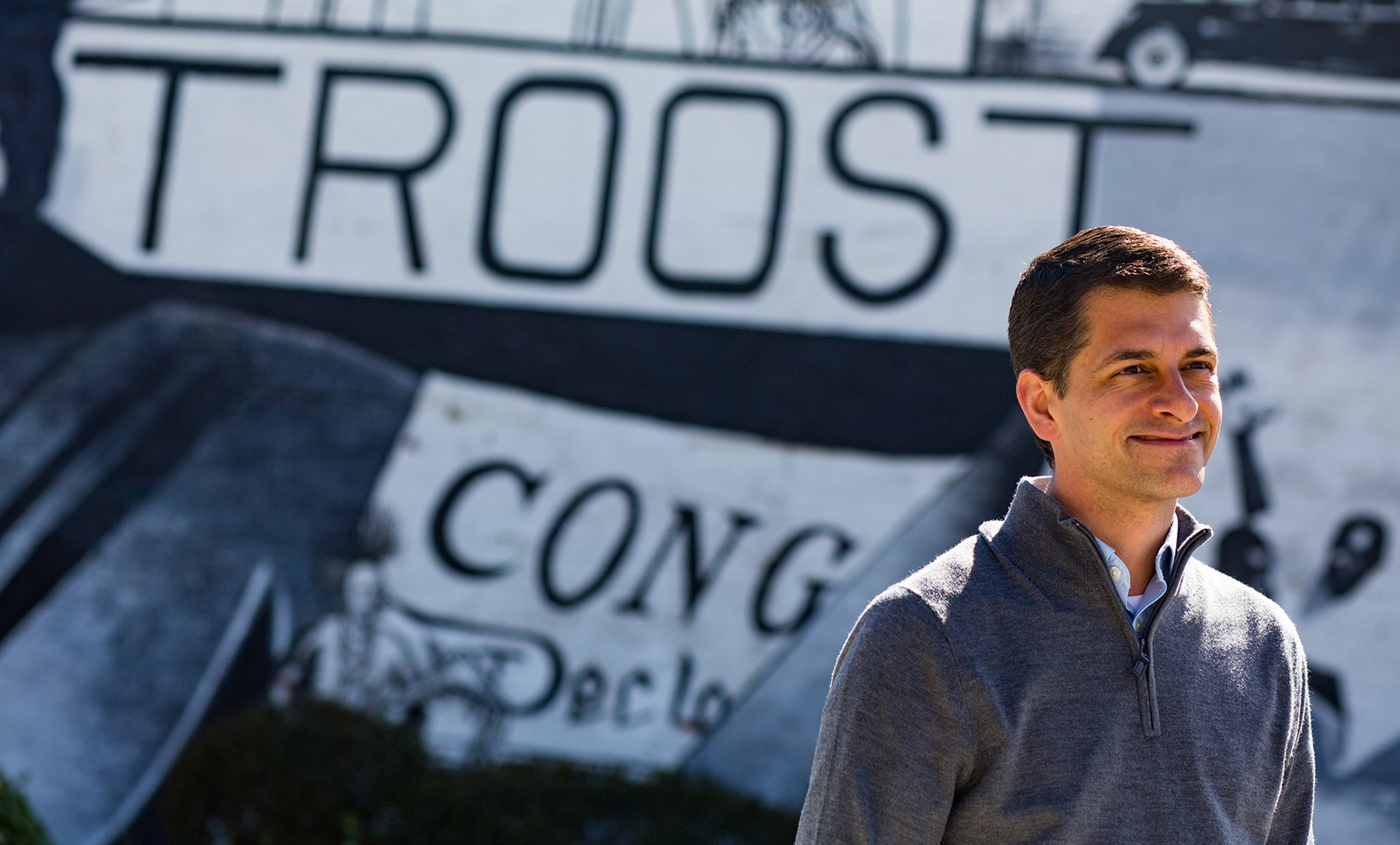
The UniverCities Exchange panel discussion is a continuing collaborative of UMKC and UMSL
The large numbers of urban real estate left vacant or abandoned is a problem facing the Kansas City and St. Louis metropolitan areas. Academic and community leaders from the two cities gathered on Feb. 10 to tackle the matter in the latest segment of UniverCities Exchange, a collaborative between the University of Missouri-Kansas City and the University of Missouri-St. Louis.
In the 90-minute program, the panel outlined the issue of vacant and abandoned properties and discussed cutting-edge prevention and mitigation strategies to address the problem.
Sarah Fenske, host of St. Louis on the Air, served as moderator. The session’s panelists included:
Brent Never, UMKC associate professor of Public Affairs and coordinator of the UMKC Institute of Data Education, Analytics and Science (IDEAS)
Peter Hoffman (J.D. ’12), managing attorney, Neighborhood Vacancy Initiative, Legal Services of Eastern Missouri
Nailah R. M’Biti (M.P.A. '15), chief real estate development officer, Ivanhoe Neighborhood Council, Kansas City
Sundy Whiteside, board president, Saint Louis Association of Community Organizations
Geoff Jolley, executive director, LISC (Local Initiatives Support Coporation) Greater Kansas City
Ruben Alonso III, president, AltCap, Kansas City
Neal Richardson, president, Dream Builders for Equity, St. Louis
Here are some highlights of the panel’s conversation regarding these problems facing Kansas City and St. Louis and how communities are addressing them.
“When you live on a block with several vacant houses there is a sense of insecurity, because of the fact that there are not eyes on the street, so it can be perceived as being very unsafe. The other thing that happens is neighborhoods with a lot of vacant homes also become very disconnected in terms of the residents with one another, especially if you're on a block where there may only be three houses that actually have people who live in the house”. ‑ Nailah R. M’Biti
“Land Bank houses are one way that we have tried to move properties from being vacant into being filled with families, adding to neighborhoods. One major issue is what's called a clouded title. A very quick example. Your family sells a house but maybe the transfer with the family members wasn't so clear and you have a clouded title, meaning is not so clear who owns that house, who is in custody. A large percentage of our houses that are vacant and abandoned are because of this clouded title problem.” - Brent Never
“As we've had this historical disinvestment, particularly in our communities of color, we have pulled that wealth and those assets out of the Black entity. We must be intentional and keep reinvesting and being sure that we're providing opportunities in the same communities for people to then build that wealth.” - Geoff Jolley
“It's not just providing the capital, but it is really a question of how do you engage the community, the neighborhood, and empower that neighborhood and build that capacity so that they can really be very involved and engaged in the process of rebuilding and bringing cohesion back to their community”. - Ruben Alonso III
“The same neighborhoods that suffer from disinvestment and high vacancy rates are also the same neighborhoods with the highest poverty rates, the highest crime rates. We're looking at 12,000 vacant properties that are privately owned in the city of St. Louis. It's an enormous problem that has gone on for way too long. Just the sheer volume, I think, is probably the biggest challenge we face, and being able to bring in enough resources to meet that challenge.” - Peter Hoffman
“The city of St. Louis has the third highest vacant property rate in the country. About 65 percent of the African American population lives in high concentrations of vacancies versus only 19 percent of Caucasians. And there's a greater impact on these high concentrations of vacancies. They created lower property values, higher rates of drug and gun crimes and illegal dumping, poorer environmental health, lower quality of life and really a lost sense of community pride.” - Sundy Whiteside
“We engage with the neighborhood associations and work to identify (nuisance) properties and build them with the youth that live there. Ultimately, this creates the inventory for homebuyers to have a safe place that they feel confident was constructed for them and created for them to be engaged. As we bring these vacant properties that have been sitting vacant for generations back onto the market, it is going to be creating housing stock that is safe and affordable for the communities to begin to start to rebuild and transform.” - Neal Richardson
UniverCities Exchange began in fall 2020 during the UM System Extension and Engagement Month with a discussion of health disparities faced during the COVID-19 pandemic. The goal of these conversations is to foster a connection for future collaboration across Missouri.
View the full UniverCities Exchange discussion below:
Feb 12, 2021
KSHB interviews UMKC dental student
Shonte’ Reed, is a first-year dental student at the University of Missouri-Kansas City; and Anne Lambert Johnson, a dentist, mentor, philanthropist and pioneer in Kansas City, is Reed’s mentor. Johnson is the first African American dentist in Kansas City and has been practicing for 47 years. Read the article and watch the newscast.
Feb 12, 2021
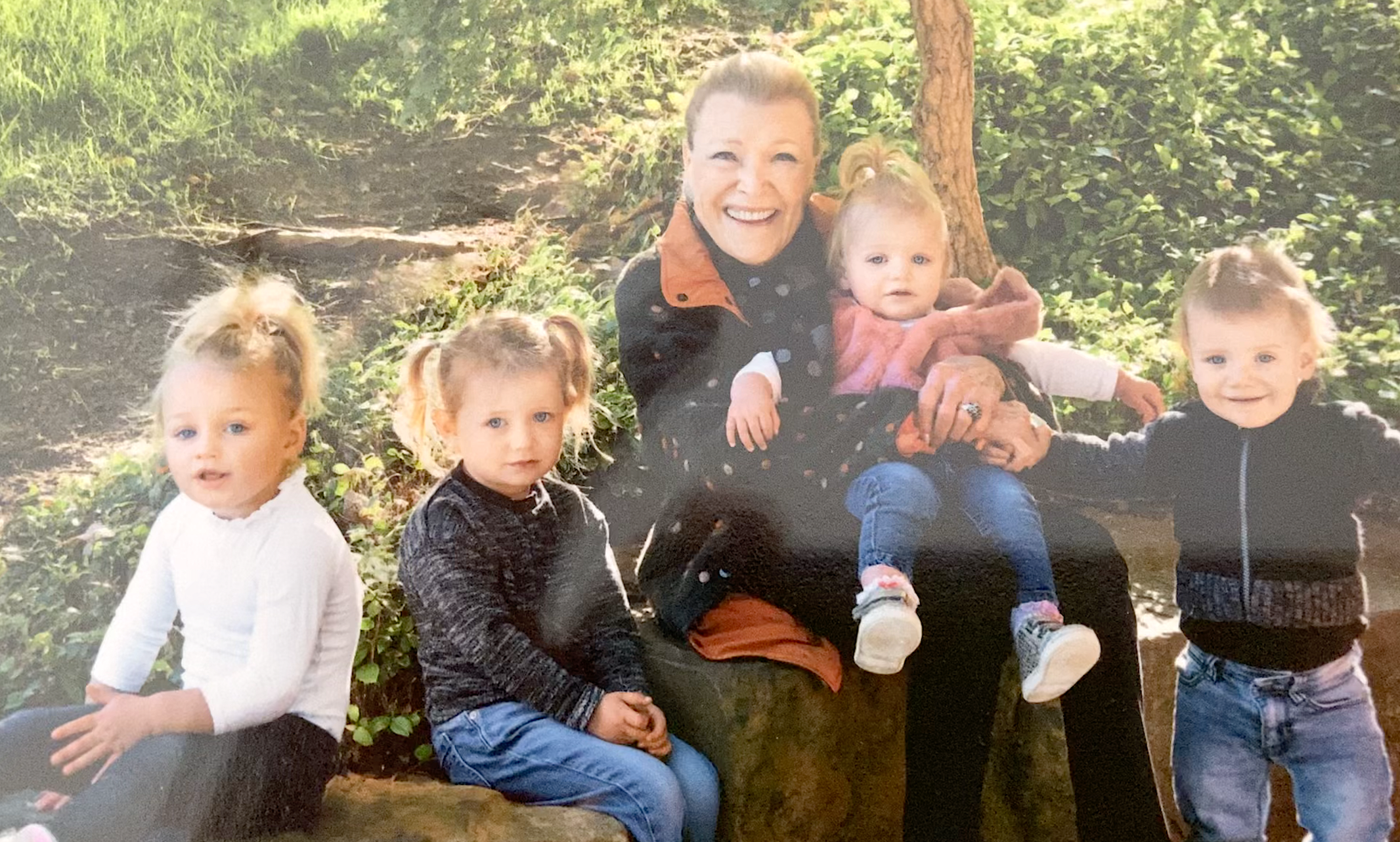
Introducing the SPARK Flossie Pack Center for Lifelong Learning
Flossie Pack’s children wanted to surprise her for her 93rd birthday. She did not expect them to donate $600,000 to support the lifelong learning center that she loves, which will bear her name.
“Our family started talking in early September about what my mom’s passions were and how we could honor her for her 93rd birthday,” Jay Pack says. “Our daughters – her granddaughters – reminded us how much she loved SPARK.”
SPARK is the Senior Peers Actively Renewing Knowledge program that operates on the University of Missouri-Kansas City campus. The organization offers regular classes, book groups and tours for retirees who have a passion for learning.
Flossie Pack, front left, at SPARK pre-COVID-19
“When I heard my mom was taking classes through SPARK I thought, ‘how cool!’” says Dee Pack, Flossie’s other son. “She has always been so articulate, well-read and interested in the arts. When I went to college and majored in music, she started piano lessons.”
One of the first classes that Flossie took at SPARK was basic computer skills.
“I didn’t know anything about computers, so I just signed up,” Flossie says.
“Now my mom Facetimes with her granddaughters all the time, which is what led to the idea,” Jay Pack says.
"Our family started talking in early September about what my mom’s passions were and how we could honor her for her 93rd birthday.” - Jay Pack
Pack contacted a lifelong friend and UMKC supporter, Ann Baum, for her advice. She recommended that Pack contact Lisa Baronio, president of the UMKC Foundation, to find out how they could help grow the organization.
“The Pack family’s devotion to honoring their mother and their vision and commitment to enhance lifelong learning is inspiring,” Baronio says. “We were excited to work together to envision a broader scope of program content and delivery in order to reach more seniors in the community.”
Last March, as SPARK was scheduled to begin its spring quarter, the COVID-19 pandemic transformed its programming in a dramatic way.
“Clearly we are a vulnerable population,” says SPARK Coordinator Bill Webb. “We wondered about going online, but had no idea how or even if we could. Some members said there was no way they would try.”
It was not an easy transition for some of SPARK’s 200 members. Ultimately, the members’ enduring commitment and curiosity led to a solution.
“We heard about holding classes on Zoom,” Webb says. “One of our instructors volunteered to give a class on classical music in May, and that worked!”
A recent SPARK outting
This unexpected challenge and the resulting solution paved the way for SPARK members to embrace new technology and envision the advantages of the updates that the Pack gift will provide.
“UMKC values lifelong learning and is proud to partner with programs offering lifelong learning opportunities to seniors in our community,” says Diane Filion, vice provost for faculty affairs. “The Emeritus College, the Cockefair Chair and SPARK are all part of that commitment. SPARK currently provides a lot of programming on a tiny budget generated by membership and course fees.They are a volunteer-based organization with a part-time office manager and a small classroom in a university-owned building on Troost. They have worried about their future financial security.”
The Pack family not only wanted to foster financial security for SPARK, they wanted to provide resources to expand the program.
“There’s a real bond between the students and the instructors,” Jay Pack says. “We wanted to provide funding to take the program to the next level through outreach and upgrading the technology and physical space.”
“When I heard my mom was taking classes through SPARK I thought, “How cool!” - Dee Pack
The gift provides funding for marketing and operational support, advertising, printing and mailing of catalogs, website development, as well as office and technology support to enhance SPARK’s ability to offer its courses via Zoom or other technologies that will allow participation by members unable to attend in person.
On her birthday, SPARK prepared a plaque with the new name of the center – The SPARK Flossie Pack Center for Lifelong Learning – and shared it with Flossie on Zoom. Her whole family, including her seven granddaughters, were present.
“She didn’t want credit or for the center to be named for her,” Jay Pack says. “But we are a close family. Everyone looks up to her, and it was great to see how much it meant to her.”
Flossie says after her first class about computers, she began to explore many different subjects including the Middle East and Western Civilization.
“The classes are so informational and I absorb so much,” she says. “And there’s no exam! A lot of us are repeat students.”
Dee Pack says the gift is a good fit because it honors his mother’s passion for learning.
“She was, and remains, so excited about her experiences at SPARK,” he says. “I hope I’m still passionate about learning at her age. We’re lucky to have a program that keeps people engaged, active, curious and informed.”
Flossie says she had no idea the gift was in the works.
“I was very pleased when they told me,” she says. “I mean, how many robes and scarves does one need?”
Feb 10, 2021
Kansas City Star's Toriano Porter writes about Mahomes wig
“Our bodies are not costumes,” University of Missouri-Kansas City law professor Jamila Jefferson-Jones said. Read the full article. (subscription required)
Feb 10, 2021
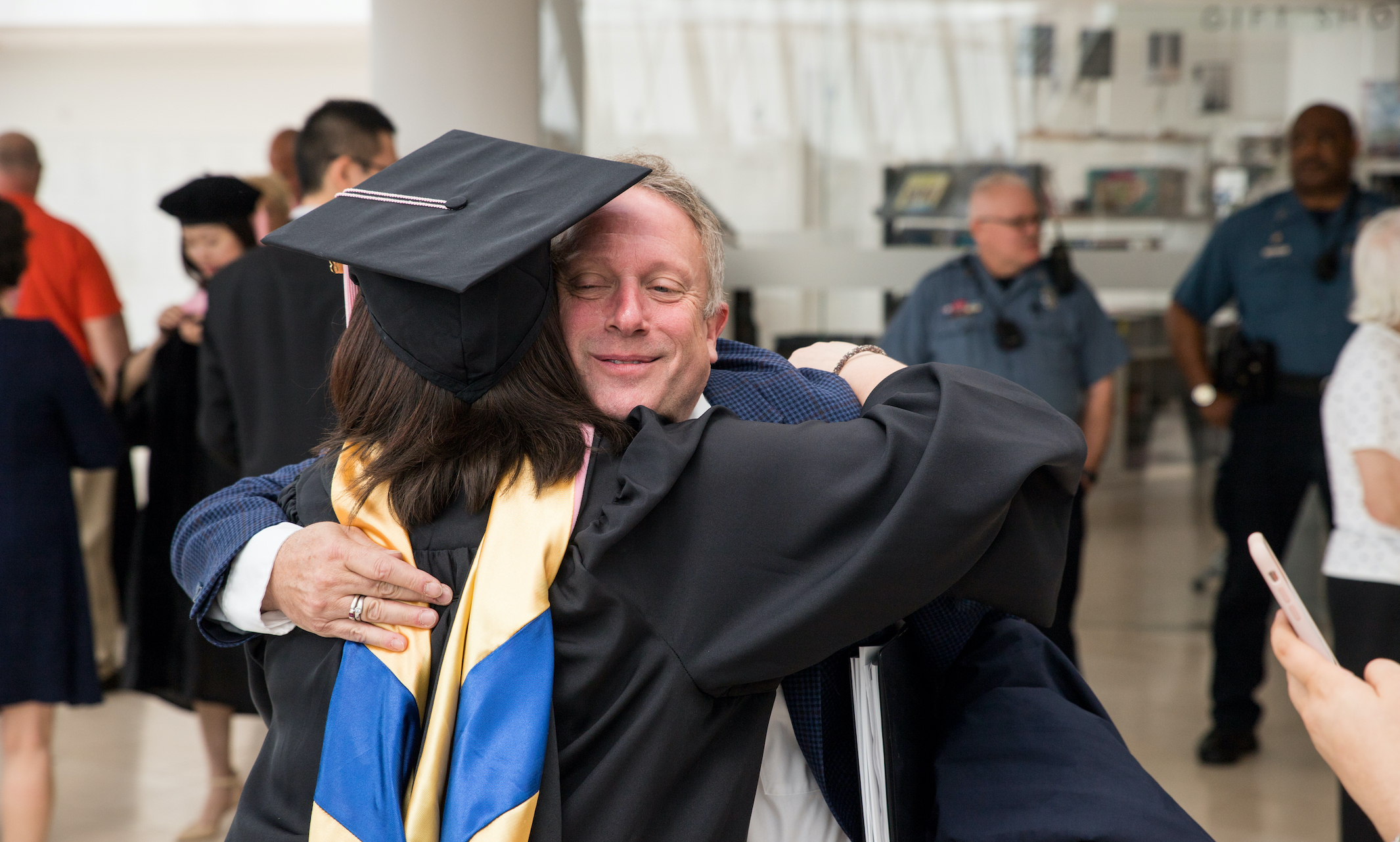
Volunteer-led 20 / 20 campaign exceeds goals
The UMKC Conservatory is celebrating the creation of 27 new endowed scholarships. Thanks to a volunteer committee which triumphed during challenging times, students who may not have been able to join the ranks of Conservatory students and alumni will now have their chance.
The Friends of the Conservatory initiated the concept of the 20 / 20 campaign in July of 2018. Their plan – to create 20 new endowed scholarships, each of which required a commitment of $25,000 or more, by the end of 2020 -- was ambitious. Long-time supporter Don Dagenais agreed to be the committee’s chair.
“I agreed to chair the campaign because I believe in what the Conservatory is doing and how critical scholarships are. I volunteered out of love for the organization and what it does for the future of music.”
“I thought we’d exceed the goal, but to exceed the goal by as much as we did was significant and it’s thanks to the donors, the committee and the staff.” - Don Dagenais
From the beginning, Dagenais thought creating 20 new scholarships in 18 months was reasonable.
“I thought we might actually do better. Once we met and put together a plan that allowed groups of people to contribute to a scholarship, I was very optimistic.”
Michael Henry, a longtime Conservatory supporter and Friends of the Conservatory board member, was one of the first volunteers to recruit friends and colleagues to create a scholarship in choral conducting in honor of Kansas City-based Grammy award winner Charles Bruffy, MM’88, artistic director of the Kansas City Chorale and chorus director of the Kansas City Symphony.
“We wanted the campaign to support new students, but also to tell a story of alumni,” Henry says. “I’m uncomfortable asking friends for money, but for this – because we support the arts and because the campaign focused on stories of people – it was personal. It was a gift of joy.”
Marylou Turner and Michael Henry
Henry and long-time Conservatory supporter and volunteer, Marylou Turner, who were the 2018 Crescendo co-chairs, announced the scholarship at the 2018 patrons’ party for the event.
“I’ll never forget it,” Bruffy says. “I was overwhelmed – stunned, grateful and shocked – by the generosity of my friends. But more importantly, I understand the importance of scholarships. Everyone deserves the opportunity to realize their personal worth and aptitude. In our world, scholarships make that happen.”
“I understand the importance of scholarships. Everyone deserves the opportunity to realize their personal worth and aptitude. In our world, scholarships make that happen.” - Charles Bruffy
Even with the challenges of the COVID-19 pandemic, the 20 / 20 campaign committee, in conjunction with the Friends of the Conservatory, Jazz Friends and the Women’s Committee for the Conservatory surpassed its goal. Their efforts resulted in individual, group, honorary, memorial and estate gifts that established 27 new scholarships. These gifts, totaling more than $1.2 million, support students in music performance, music therapy, music education, jazz, theatre and dance.
“I hoped we’d be successful,” Dagenais says. “I thought we’d exceed the goal, but to exceed by as much as we did was significant and we extend our thanks to the donors, the committee and the staff.”
Feb 10, 2021
98.8 The River interviews UMKC Ph.D. student
Jordan Ayala, an eviction researcher and Ph.D. candidate at the University of Missouri-Kansas City, was interviewed. Ayala analyzed the court filings. Read more.
Feb 07, 2021
Tampa Bay Times interviews Mary Anne Jackson
In Kansas City, cases are the lowest they’ve been since October, said Dr. Mary Anne Jackson, an infectious disease expert and dean of the University of Missouri-Kansas City School of Medicine. Read the full article.
Feb 05, 2021
Yahoo Entertainment writes about UMKC student
Jackson Mahomes is a UMKC student. Read the article.
Feb 05, 2021
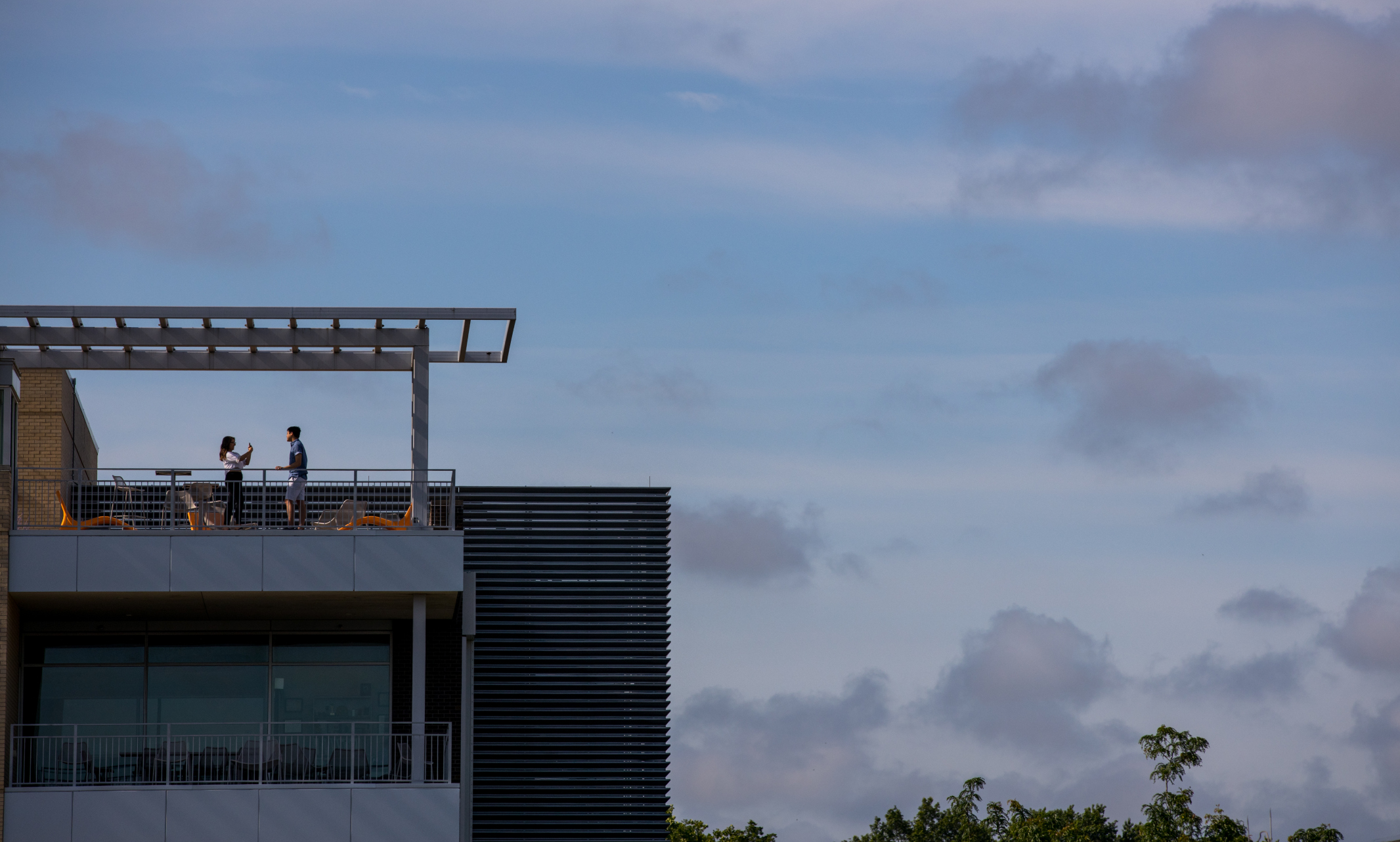
Kauffman Foundation donates $400,000 to stimulate on-campus innovation
Students, faculty and staff from all UMKC academic units, centers, institutes and other programs are eligible to apply for grants to fund projects designed to expand entrepreneurial activities at UMKC.
Thanks to support from the Ewing Marion Kauffman Foundation, UMKC has launched a new Entrepreneurship Innovation Grant (EIG) program. A total pool of $400,000 is available for grants over the next two years to support a broad variety of initiatives in entrepreneurship including curriculum development, technology commercialization, school and department initiatives, community service, engagement and ecosystem building. Collaboration among groups is highly recommended.
The first application period for the Entrepreneurship Innovation Grant is now open. Proposals must be submitted no later than 11:59 p.m. Sunday, February 28. The program, and the Kauffman grant that funds it, are the product of a joint effort by the UMKC Innovation Center, the Regnier Institute at the UMKC Bloch School of Management and the UMKC School of Law to help increase entrepreneurial activities and opportunities across UMKC.
“UMKC hosts an impressive array of entrepreneurial programs and services that reach deep into the university and the community to develop new ideas and talent that respond to the challenges of our region and help to shape its future. With this grant program, we are now providing direct incentives to stimulate even more collaboration and growth,” said Maria Meyers, executive director of the UMKC Innovation Center. “Converting UMKC skills, ideas and innovations into real-world applications and markets will drive better, more inclusive futures that will help us address and solve today's and tomorrow's challenges.”
Feb 04, 2021
Flatland KC interviews Jacob Wagner
Jacob Wagner, associate professor of urban studies at the University of Missouri-Kansas City, said evictions are a poorly understood factor in neighborhood decline. Read more.
Feb 04, 2021
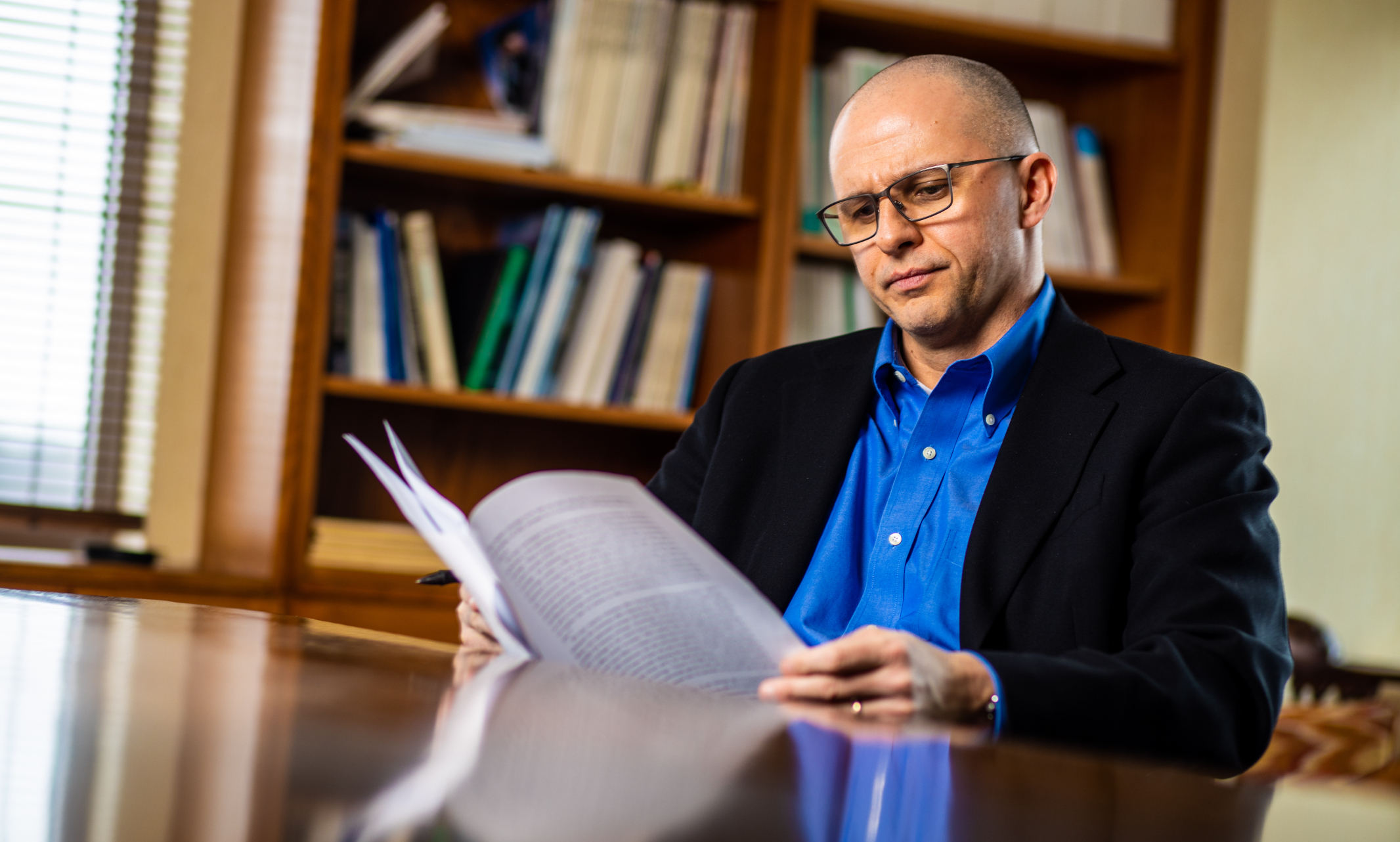
Christopher Garmon of the Bloch School is a nationally recognized expert
Christopher Garmon, assistant professor of health administration in the Bloch School of Management, has done extensive research on medical billing, with a focus on how insured patients often are shocked by huge bills from out-of-network providers.
The issue was partially addressed by federal legislation passed in late December. Once this surprise medical bill legislation goes into effect in 2022, most out-of-network providers will no longer bill patients directly. Instead, providers and insurers must negotiate how much the insurer will cover. If they can’t agree, an independent arbitrator would step in.
This was the kind of federal-level legislation Garmon and other experts have been advocating for years. He sat down with UMKC Today to share eye-popping examples of the kinds of situations the new legislation will affect.
How do you define “surprise medical bills” in the context of your research?
My research (and recent federal and state legislative efforts) have focused on surprise medical bills from an out-of-network provider that the patient did not expect and could not reasonably avoid. For example, if you go to an emergency room of a hospital in your health plan’s network, the expectation is that all of the care received at that hospital will be in-network. However, the emergency room physicians may be out-of-network even though the hospital itself is in-network. Because there is no contract between the out-of-network physician and your health plan, there is no agreed-upon price for the physician’s services. The physician can charge whatever amount she thinks is reasonable and the insurance company can reimburse whatever amount it thinks is fair. These two amounts are often far apart and the physician may bill the patient directly for the balance. It is this “balance bill” from the out-of-network doctor, often for hundreds or thousands of dollars, that places a devastating burden on the patient.
What are the health-care situations in which surprise bills are most likely?
Most of the research suggests that roughly 20 percent of emergency room cases lead to surprise out-of-network bills, although some recent research indicates that it may be even higher. Roughly 10 percent of newborn deliveries may involve a surprise medical bill (for example, when the hospital and obstetrician are both in-network, but the anesthesiologist administering the epidural is out-of-network). One area where surprise out-of-network medical bills are common is ambulance service. Roughly 50 percent of ambulance cases involve an out-of-network ambulance. In other words, if you have an emergency and call 911 needing an ambulance, it’s basically a flip of a coin whether that ambulance is in your health plan’s network or not. It is important to note that the federal legislation passed in December will not protect patients from out-of-network ground ambulance bills. In general, the more severe the injury or complexity of treatment, the more likely a patient is to receive care from an out-of-network provider.
Can you share one of the worst examples of exorbitant surprise medical billing that you’ve come across?
One of the most egregious cases was documented by Elisabeth Rosenthal for the New York Times who described the experience of a man who underwent an elective neck surgery. He made sure the hospital and surgeon were both in his health plan’s network when scheduling the surgery. He even made sure the anesthesiologist on call the day of his surgery would be in-network. However, during the surgery, another surgeon was called in to assist. This assistant surgeon was out-of-network and he received a bill from this surgeon for more than $110,000. This extreme case highlights that, without legal protections, there is no way to guarantee that a patient can avoid a surprise out-of-network medical bill even in elective situations and even when the patient takes every precaution to avoid them.
What can people do to protect themselves from surprise medical bills?
First, it is important to point out that those covered by Medicare (including Medicare Advantage plans), Medicaid and Tricare are legally protected from surprise out-of-network medical bills. For those with private insurance, it depends on where you live and the type of health plan you have. Unfortunately, until the new legislation goes into effect, there are many patients who are vulnerable to surprise out-of-network bills regardless of what they do to prevent it.
Some states have protections against surprise out-of-network billing. Missouri recently implemented a law protecting patients from surprise out-of-network medical bills, but only for emergency services. In addition, state protections from surprise billing only apply to patients covered by health plans that are regulated by the state. Many people who receive their health insurance through their employer have health plans that are regulated by the federal Department of Labor. State protections against surprise billing do not apply to them.
What needs to happen next?
Given the lack of protections for patients with federally regulated health plans, there was a strong consensus that a federal solution was needed. Still, the recent federal legislation does not offer complete protection for patients. While it protects patients from air ambulance bills, ground ambulances are excluded, so patients are still vulnerable to bills from out-of-network ground ambulances. Future federal legislation should protect patients from ambulance surprise bills.
Feb 03, 2021
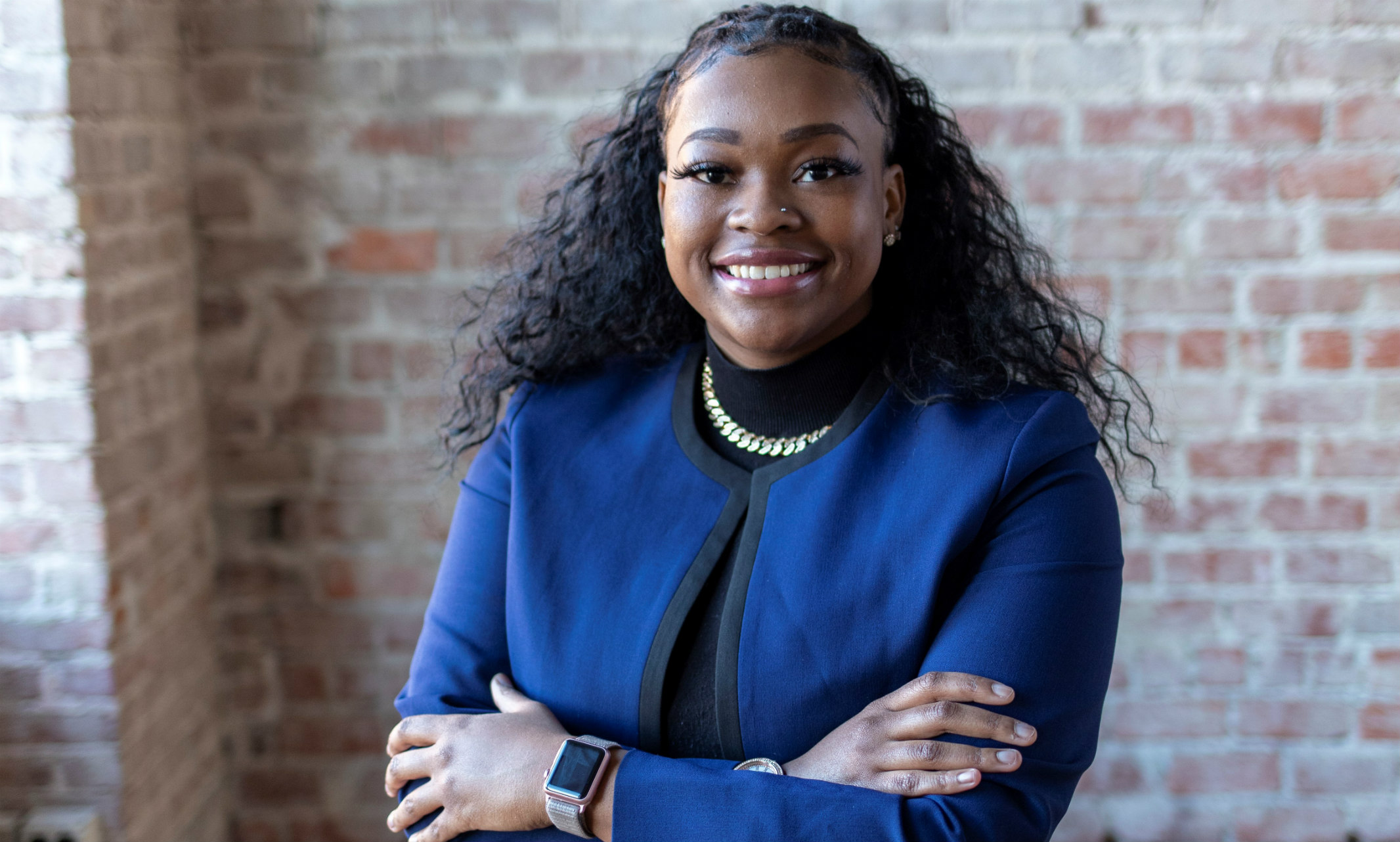
Shae Perry, B.A ’19, is carving out her own career path as a community engagement and media mogul
When Shae Perry makes it big, we can say “we knew her when…” The recent graduate, known by many as ShaeFromTheLou – her entertainment moniker – established a love for media early in her collegiate career and credits her faculty and staff mentors for helping to cultivate her potential.
As she uses her entrepreneurial experiences to carve out her own path as a media mogul and community advocate, her impact and influence span across highway 70 between Kansas City and her St. Louis, Missouri, hometown. We sat down with Shae to find out how things are going for the recent Communications Studies graduate.
Name: Shae PerryUMKC degree program: Communications Studies, emphasis in film and mediaGraduation year: December 2019Hometown: Saint Louis
"I learned that with a plan and execution, I could accomplish almost anything."
Tell us about your current position.
I'm currently a brand ambassador for Big Brothers Big Sisters KC. My role consists of connecting with leaders in our surrounding communities and finding ways to make beneficial collaborations. On weeknights and weekends, I'm an on-air radio personality on KPRS Hot 103 Jamz – FM station 103.3. My entertainment name is Deona HuSTLe. KPRS is the oldest, continually Black family-owned radio station in the United States. Both of my roles put me in more spaces to engage with the community. I’ve had the opportunity to do interviews and spread the word about our mission. It’s dual beneficial.
The competition is tough in entertainment. How’d you stand out and land the role at KPRS?
I had been consistently reaching out to KPRS for years trying to get my foot in the door. Every chance I got, I went to visit the station and make sure they knew my face. Angela Elam, one of my Communications Studies professors and the producer and host of New Letters On Air, encouraged me to attend a Missouri Broadcast Association Radio Camp where I received certification in radio marketing. I believe attending the camp to learn more about radio helped better equip me for my job at KPRS. After the growth experienced in Kansas City during college, I was determined to start my professional career here. St. Louis will always be home, though.
What brought you to UMKC?
A college recruiter visited my high school during my senior year. When I toured UMKC for orientation, I found out one of my group leaders was from my hometown, graduated from my high school and played basketball there under the same coach I did. Our similarities were a coincidence, but it helped me feel at home. Not to mention, my parents enjoyed the visit and my mother was really in love; so that was an easy “yes!”
What was your favorite thing about UMKC?
The UMKC campus was a perfect size for me to immerse myself in a variety of campus activities and in the classroom without feeling unheard. The student-to-faculty ratio was great for comprehending coursework and receiving extra help. The university also had various resources and groups to connect with, including the MSA Village, where I spent much of my time meeting peers and other leaders.
"The saying, 'it's not what you know, it’s who you know' rings true in my life, both in school and in my career."
Who was the most influential faculty or staff member at UMKC?
This is tough because there were so many, but there are two people I must mention who were influential in my younger years.
During new student orientation, I selected all the courses I’d take for my freshmen year, one of which was radio production. My advisor informed me that the professor typically only allowed upperclassmen and I’d probably be rejected. Luckily, Professor Angela Elam accepted my enrollment in the course and I really enjoyed learning about radio. Angela was also the advisor for K-Roo, the student radio station, and helped me get more involved to eventually become president my junior and senior years.
While I was learning radio, I took a couple of video production classes taught by Professor Kevin Mullin. I found a real love for creating and editing in that class and Kevin always went above and beyond in answering my many questions. Both Angela and Kevin were, and still are, great mentors to me and I appreciate them.
How did you choose your field of study?
I stayed open-minded throughout my four years. I took a variety of courses and hosted many campus events and parties. In 2017, I started my own videography and entertainment company, SFTL Entertainment. In 2018, Roo Athletics and the Office of Student Involvement asked me to emcee some of the men’s and women’s sports games. I had the opportunity in 2019 to write and direct my first short film and cast other UMKC students. Through all of this, I was still active as president of K-Roo. All of these activities helped me find my path in communications.
What’s the influence behind SFTL?
I started going by ShaeFromTheLou my senior year of high school. My school was very close to Ferguson, and when the unfortunate death of Michael Brown occurred, we halted classes for a few days due to protests. I and three other seniors banded together to help the Black-owned businesses in our community. When MSNBC wanted to do a story on us, I didn’t think my name on social media worked well. I wanted something catchy that still paid homage to my city, so ShaeFromTheLou. Any creative content I produce, I use SFTL. When I’m on the radio it’s Deona HuSTLe. Deona is my middle name and I believe the word hustle is one of the words that best describe me.
Wow! You have a lot going on. How do manage your time?
I haven’t had a break yet since I started working. I enjoy both of my jobs, so it doesn’t technically feel like work because it’s fun and I’m helping other people. However, I do want to make sure that I’m leveling up in both my business and personal lives, so I try to implement self-care and remind myself to take a day off if I’m stressed out.
What are the challenges of your field?
Communication, in general, is a broad field, there’s so much you can do in the industry. The most difficult part of that, for me, can be finding your niche. Even today I continue to find different things that interest me.
What are the benefits?
It’s such a fun field, especially for film and media, which is what my degree is in. I’ve had the opportunity to interview celebrities and get behind the scenes access at events; it’s definitely a timeless industry. The other benefit of communications is the ability to be creative, there’s nothing like seeing your vision come to life.
What did you learn about yourself while you were here?
I learned that I not only had an interest in being in front of the camera, I also had an interest in being behind it. I’ve organized community events and lead the student radio station and they both pushed me to become a better person. I learned that with a plan and execution, I could accomplish almost anything.
"The student-to-faculty ratio was great for comprehending coursework and receiving extra help."
How did UMKC help you reach your current position?
Connections and experience. The saying, “it's not what you know, it’s who you know” rings true in my life both in school and in my career. Many of the opportunities I’ve been given are due to faculty and staff members mentioning my name in important rooms. Carla Wilson was one of those staff members who always supported my aspiration by connecting me with other leaders and her positive reference went a long way. UMKC also gave me a lot of experience. Whenever I saw an opportunity, I took it. I hosted the Union Programming Board’s annual talent show, the K-Roo weekly radio show, organized campus events and more. I even had a chance to emcee KC Roos basketball games. All of those opportunities gave me a different perspective and most importantly experience.
What are your goals for the future?
My list of goals is lengthy, but I have a few key areas I want to focus on these next couple of years. I am interested in doing more public speaking engagements. I want to do public speaking to help young people know the work involved in achieving success. I'll be speaking at a workshop for teen girls in March about career planning.
I premiered my first short film last year titled “Court-side Reality,” and I enjoyed it so much that I want to write more YouTube series and films. I also enjoyed my time as the emcee for KC Roos basketball games and hope to emcee for more college or professional sports events. Finally, one of my long-term goals is to own a television and radio network and give others like myself a platform to be creative and be heard! I love bringing people together and all these goals help me do that in a creative way.
What is your advice for a student entering UMKC?
Stay open-minded and engage with your peers and faculty and staff members. Many of my connections came from being at events and networking. College is what you make it; be intentional about applying yourself and ask questions. Also, you won’t know you're skilled in something if you don’t at least try. I have tried things and failed, but I can at least say that I tried and learned how to do them correctly next time. Don’t shy away from opportunities because you are afraid to fail or afraid of what others will say. It’s all a part of learning yourself. Go for it, ask a lot of questions. It shows that you’re assertive.
Feb 03, 2021
Kansas City media cover School of Medicine panel discussion
Bridgette Jones from Children’s Mercy, an associate professor of pediatrics at the University of Missouri-Kansas City School of Medicine, moderated a panel of several local experts on Feb. 4. Jannette Berkley-Patton with the University of Missouri-Kansas City School of Medicine also was on the panel. Read the Kansas City Star story. (subscription may be required). Read the KSHB story and watch the newscast.
Feb 03, 2021
College of Arts & Sciences student discusses fellowship with Arrowhead Art Collection
“There’s a wide range of media, which is something that should be applauded. That’s kind of hard to do in a stadium,” says Meghan Dohogne, a Ph.D. student at the University of Missouri-Kansas City, who has been working with the collection on a fellowship basis for about a year and a half. Read more from KCUR.
Feb 03, 2021
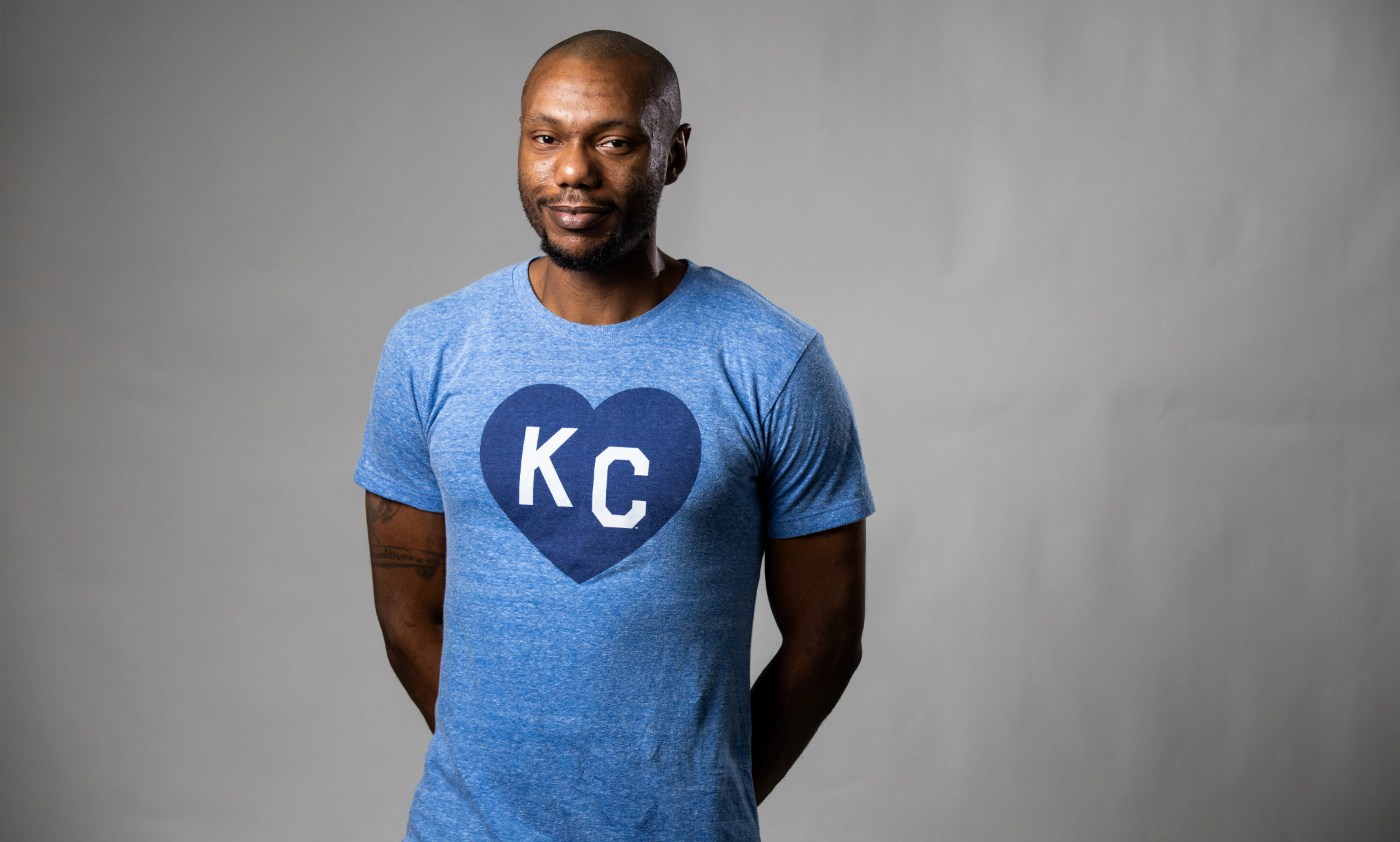
Matthew Ramsey finds success in education
Our ongoing story starts with people from around the world, converging here at UMKC. Get to know our people and you’ll know what UMKC is all about.
Matthew RamseyAnticipated graduation: Spring 2021Academic program: Bachelor of Liberal Arts, School of Education and College of Arts and SciencesHometown: Kansas City, Missouri
Matthew Ramsey is married with two young children. He has a job, coaches youth basketball and is pursuing his teaching certificate. With his quiet and easy-going nature, he makes it look easy – even when it’s not.
Ramsey has had to take breaks from his education, but he has always been determined to finish. He enjoys working with kids, so teaching and coaching seem like a perfect fit.
“I’ve always worked with younger students,” Ramsey says. “I helped take care of my younger family members and this is my fourteenth season coaching high school basketball.”
Ramsey attended programs at other schools, and there were times when he didn’t know if he would be able to graduate.
“With a family of my own to provide for and work obligations, I had almost given up hope of completing my degree,” Ramsay says.
When Ramsey visited UMKC he realized it was a good fit.
"With a family of my own to provide for and work obligations, I had almost given up hope of completing my degree." – Matthew Ramsey
“The campus is beautiful and they have a wide variety of class schedules which favored me as a non-traditional student,” he says. “It works for me because it is centrally located in the Kansas City area and is easily accessible and the proximity to my home made it an easy commute.”
Ramsey enrolled in UMKC determined to graduate.
“I’ve found the program to be great in preparing future teachers. I have always felt welcome and accepted, which is something I cannot say for other institutions I attended.
All of the staff are kind and helpful. And the advisors’ office is one of my favorite spots on campus. They have been great.”
“Raising a family, working and going to school – it’s a lot. But this program inspired me to go after my dreams.”
Ramsey is a Hazel Browne Williams Scholarship recipient. Williams earned her master’s degree in 1929 and became an associate professor of the UMKC School of Education in 1958. She was the first full-time Black professor at UMKC and the first Black professor given emeritus status at the university in 1976.
While Ramsey’s tenaciousness matches Williams’s, he says getting closer to graduation would have been much harder without the scholarship.
Ramsey says he has learned a lot about himself while he’s been in the program.
“Raising a family, working and going to school – it’s a lot. But this program inspired me to go after my dreams.”
“It’s forced me to reexamine my perspectives and reflect on my own background and bias,” he says. “But I’ve learned that no matter how many setbacks I have suffered – or no matter how many challenges are placed in my path – as long as I work hard and believe, anything is possible.”
Feb 02, 2021
KC Studio highlights manuscript stored in UMKC LaBudde Special Collections
For every performance of “Porgy and Bess,” an unknowable quantity of Black operas languishes in manuscript form, like John Duncan’s “Gideon and Eliza,” stored in the UMKC LaBudde Special Collections. Read the full article.
Feb 02, 2021
